Neuroscience
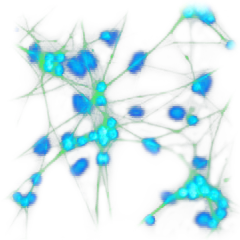
Neuroscience
Neurons communicate with each other, effector organs and sensory organs through the neurotransmitter – receptor pathway at synapses. Neurotransmitters can be divided into 4 major groups: 1. Amino acids (glumate, aspartate, serine, glycine and GABA); 2. Monoamines (norepinephrine, epinephrine, dopamine, histamine, and serotonin); 3. Peptides (opioid peptides, substance P, somatostatin); and 4. Others (acetylcholine, NO, nucleosides).
Targets for Neuroscience
- 5-HT Receptor(549)
- AChR(62)
- AChE(114)
- Alzheimer(109)
- Amyloid β(157)
- BACE(5)
- CGRP (33)
- COX(306)
- DAPK(6)
- Dopamine Receptor(319)
- GABA Receptor(239)
- Gap Junction(23)
- GluR(121)
- Histamine(4)
- Histamine Receptor(241)
- mPEGS-1(5)
- Muscarinic Receptor(46)
- Neuroscience Peptides(94)
- Nicotinic Receptor(70)
- P2 Receptor(2)
- P2X7 receptor(5)
- SSRIs(8)
- Substance P/NK1 Receptor(22)
- NMDA(2)
- Cholecystokinin Receptor(22)
- GPR139(3)
- mAChR(139)
- MCHR1 (GPR24)(15)
- Neurokinin Receptor(60)
- iGluR(139)
- nAChR(66)
- Beta-secretase(26)
- CaMK(33)
- Dopamine Transporter(17)
- Monoamine Oxidase(84)
- Serotonin Transporter(57)
- Behavioral Neuroscience(274)
- DREADD(0)
- Huntington(10)
- Neuroendocrinology(39)
- Neuroprotection(81)
- Ophthalmology(116)
- Pain Research(166)
- Parkinson(49)
- Seizure Disorders(74)
- Prion(6)
- Cholinesterases(13)
Products for Neuroscience
- Cat.No. Nom du produit Informations
-
GC12432
(+)-Anabasine hydrochloride
Le chlorhydrate d'Anabasine ((S)-Anabasine) est un alcaloïde présent comme composant mineur dans le tabac (Nicotiana).
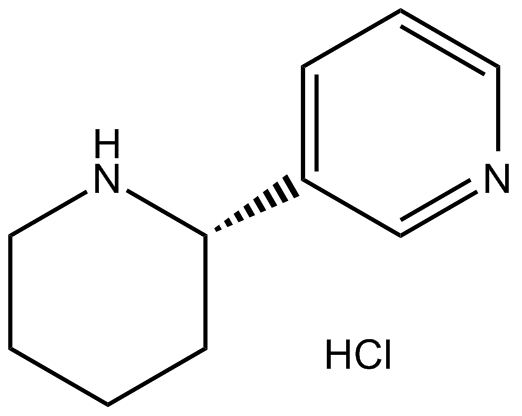
-
GN10745
(+)-Bicuculline
(+)-Bicuculline est un antagoniste compétitif sensible à la lumière du récepteur GABA-A.
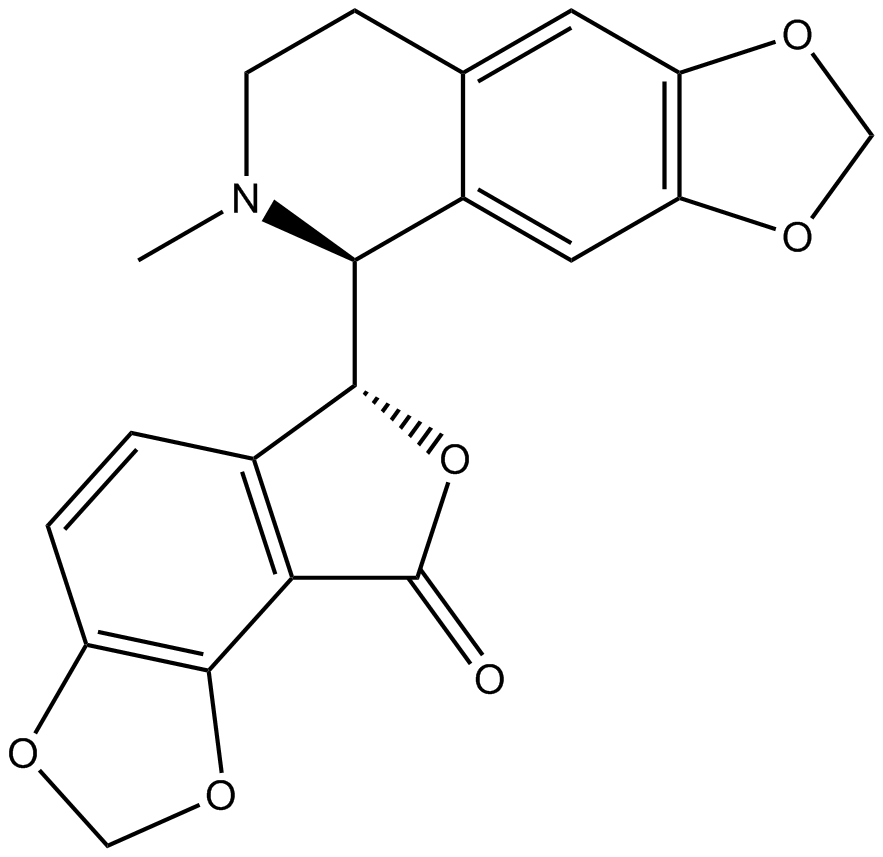
-
GC34954
(+)-Borneol

-
GN10605
(+)-Catechin hydrate
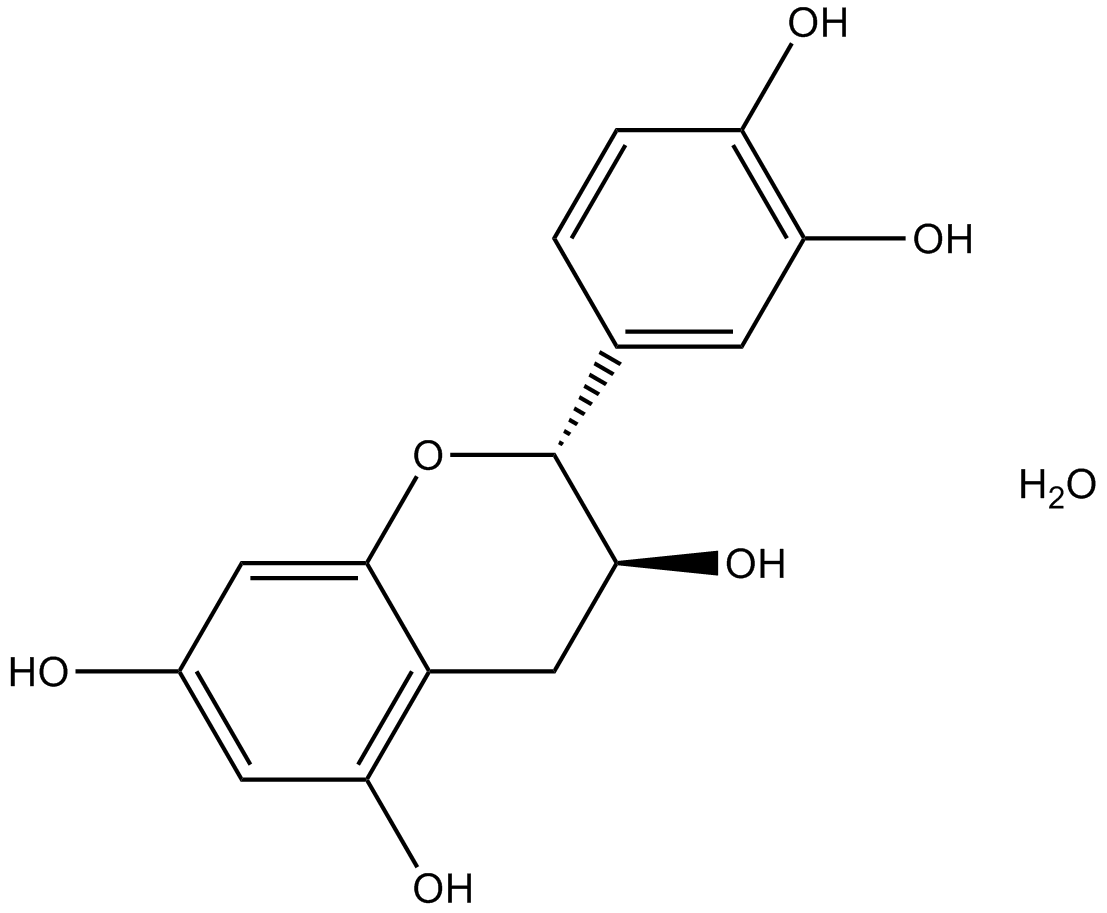
-
GC34957
(+)-Cevimeline hydrochloride hemihydrate
(+)-Hémihydrate de chlorhydrate de céviméline ((+)-SNI-2011), un puissant agoniste des récepteurs muscariniques, est un médicament thérapeutique candidat pour la xérostomie dans le syndrome de SjÖgren.
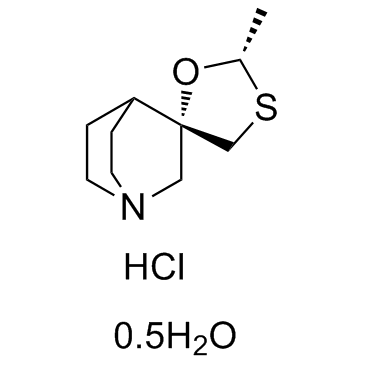
-
GN10654
(+)-Corynoline
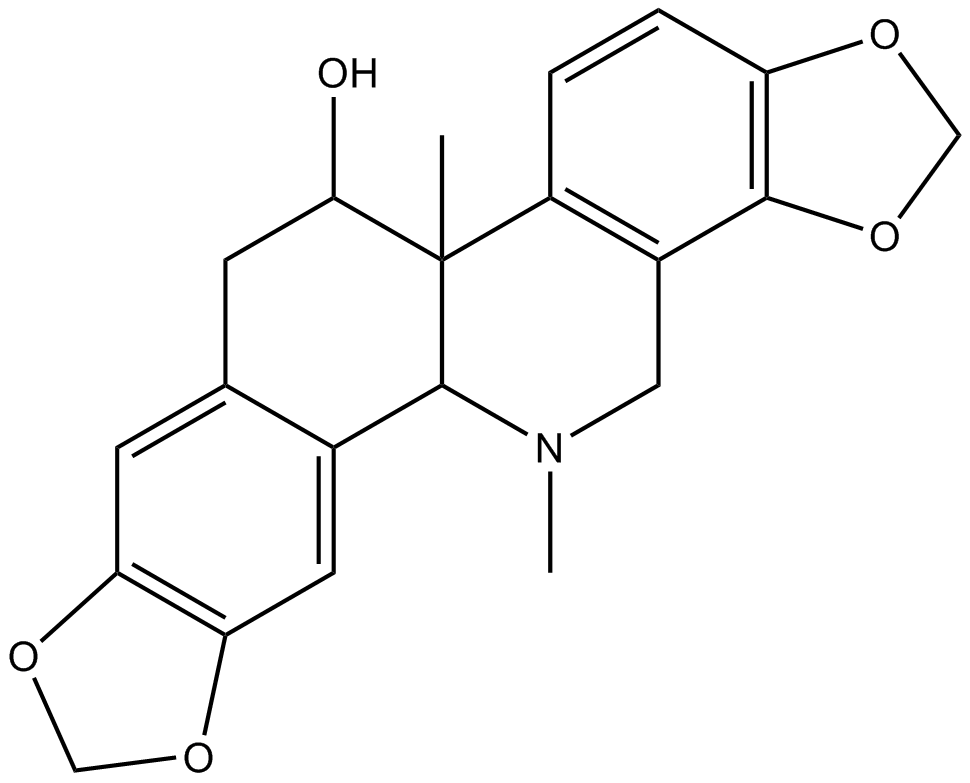
-
GC45263
(+)-D-threo-PDMP (hydrochloride)
(+)-D-threo-PDMP is a ceramide analog and is one of the four possible stereoisomers of PDMP.

-
GC30933
(+)-Kavain
(+)-Kavain, une kavalactone principale extraite de Piper methysticum, possède des propriétés anticonvulsives, atténuant la contraction des muscles lisses vasculaires grÂce À des interactions avec les canaux Na+ et Ca2+ voltage-dépendants.
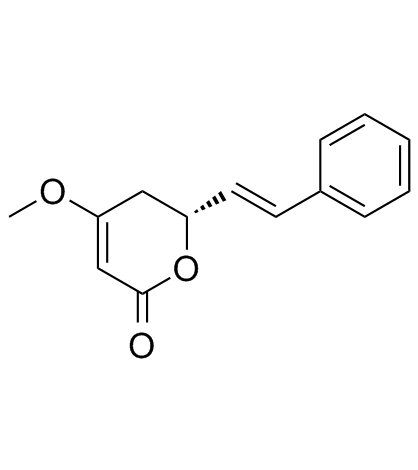
-
GC10736
(+)-Muscarine iodide
L'iodure de muscarine ((+)-muscarine) est une toxine qui peut stimuler le système nerveux parasympathique.
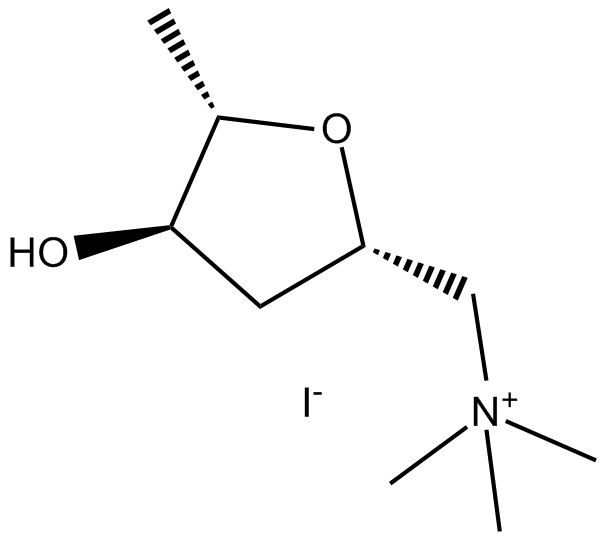
-
GC68210
(+)-Norfenfluramine

-
GC30848
(+)-PD 128907 hydrochloride
(+)-PD 128907 hydrochloride est un agoniste sélectif des récepteurs dopaminergiques D2/D3, avec Kis de 1,7, 0,84 nM pour les récepteurs D3 humains et de rat, 179, 770 nM pour les récepteurs D3 humains et de rat, respectivement.
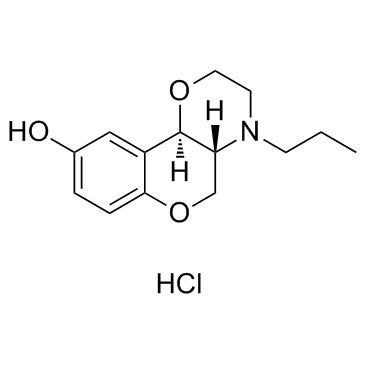
-
GC34959
(+)-Sparteine
(+) - La spartéine est un alcaloÏde naturel agissant comme agent de blocage ganglionnaire.
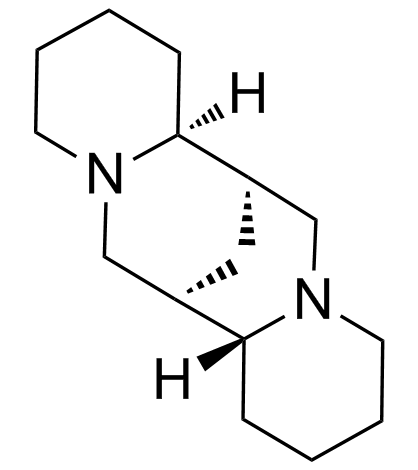
-
GC11062
(+)-Tubocurarine chloride
nicotinic acetylcholine receptor antagonist
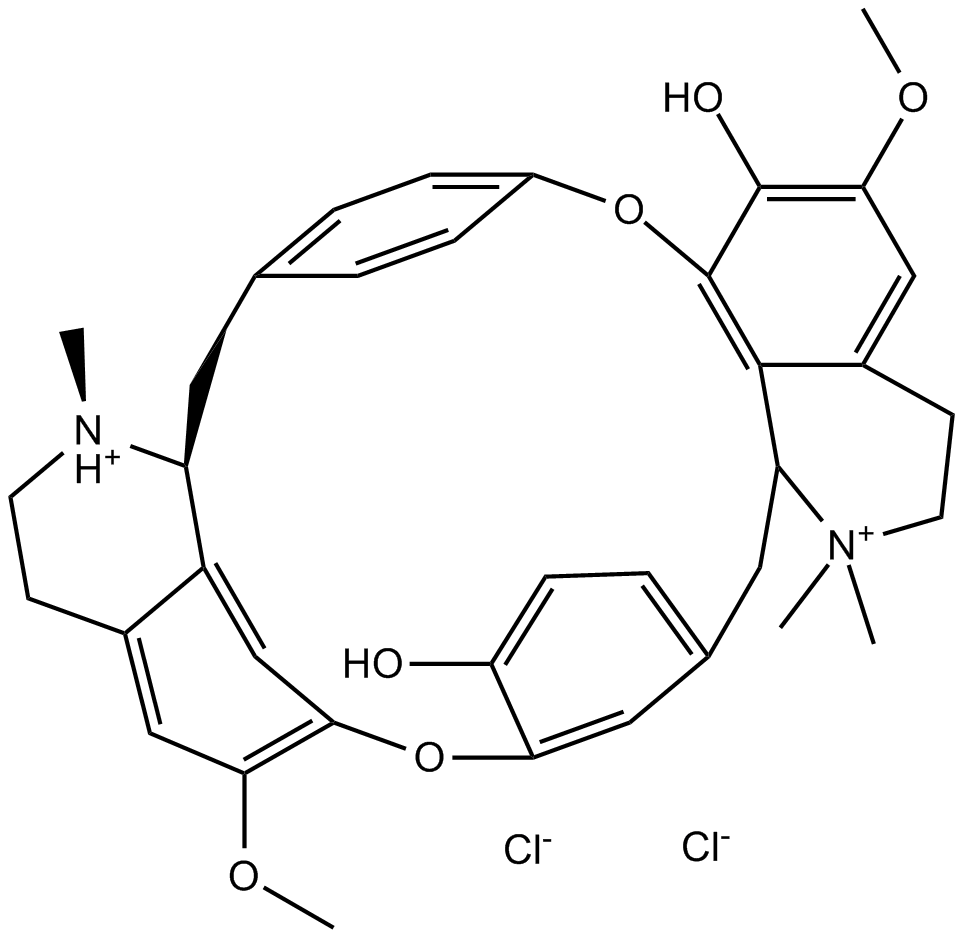
-
GC12870
(+)-UH 232 maleate
Antagoniste de D2
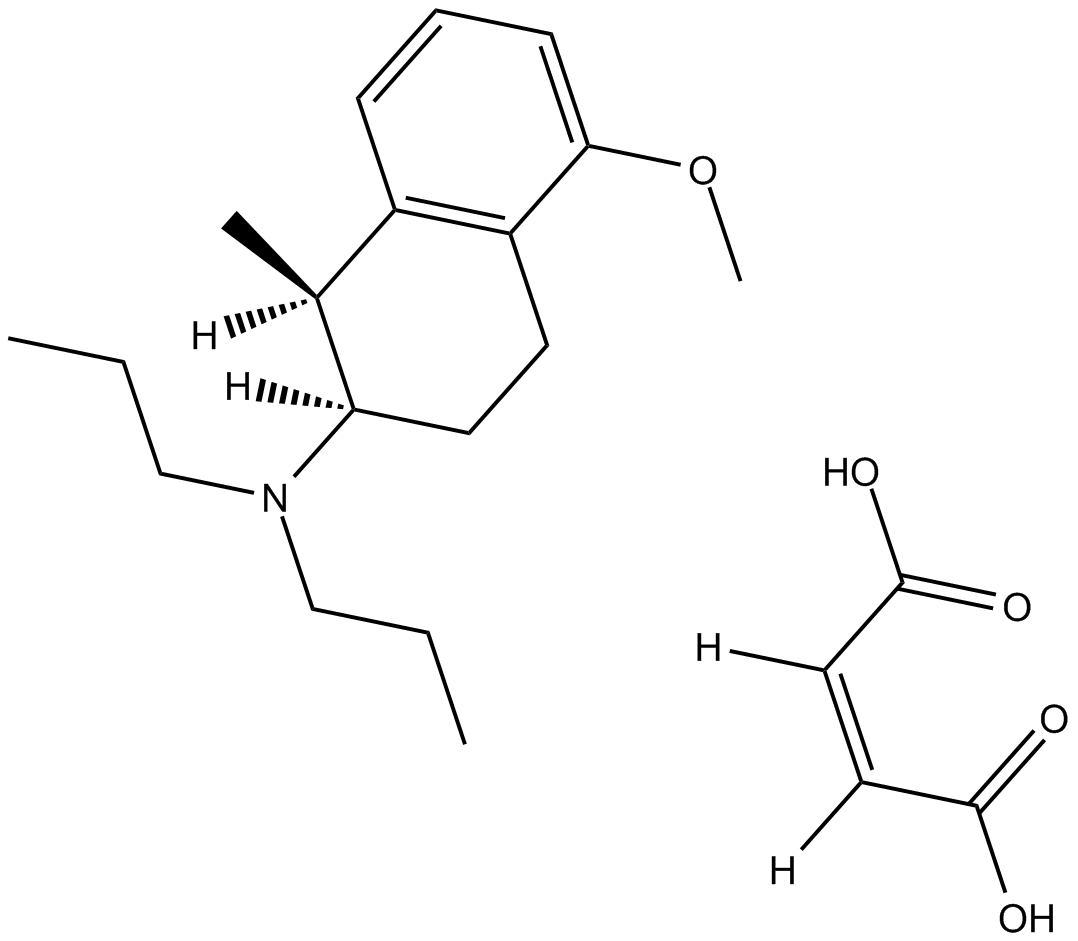
-
GC11049
(+/-)-Sulfinpyrazone
(+/-)-sulfinpyrazone (G-28315) est un agent uricosurique actif et puissant par voie orale pour l'arthrite goutteuse chronique et intermittente.
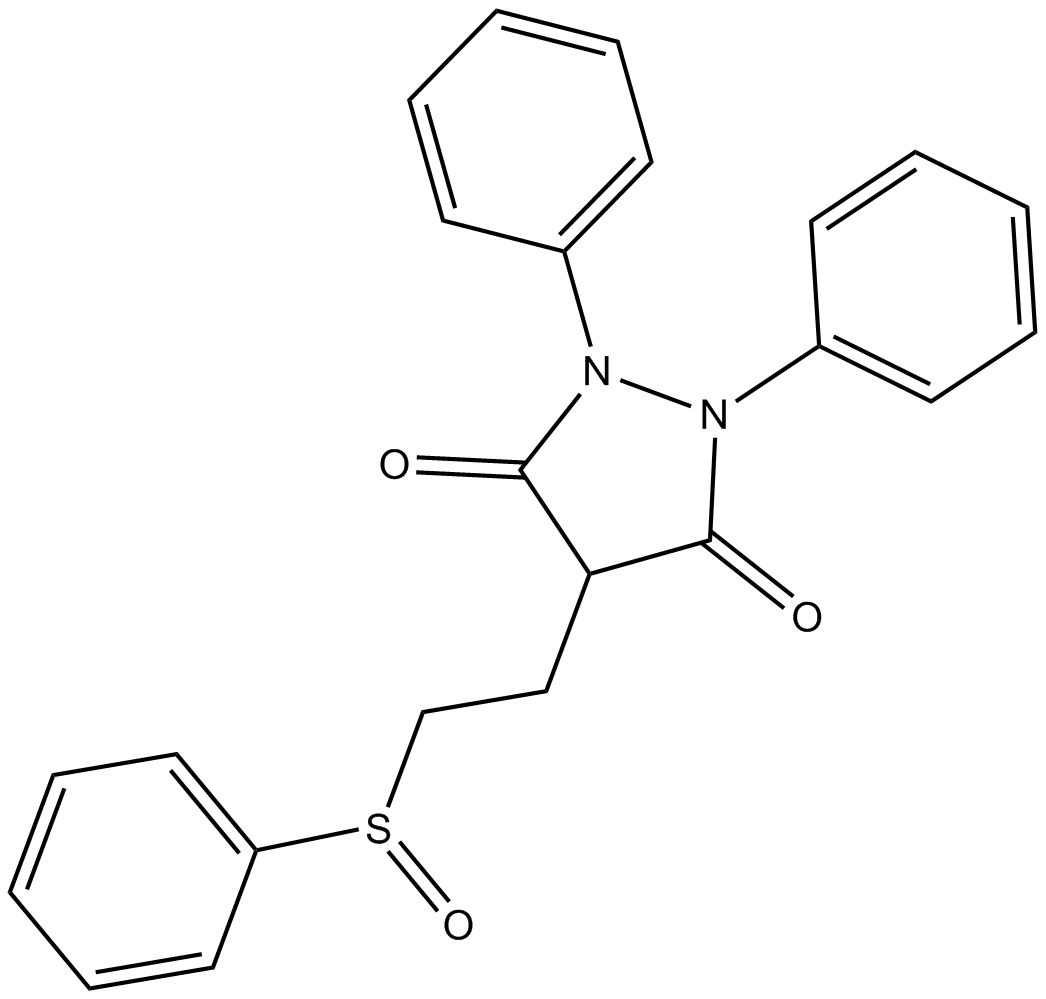
-
GC38677
(-)-α-Pinene
Le (-)-α-pinène est un monoterpène et présente une propriété d'amélioration du sommeil par une liaison directe aux récepteurs GABAA-benzodiazépine (BZD) en agissant comme un modulateur partiel au site de liaison BZD.
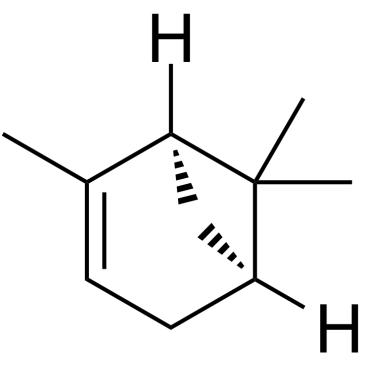
-
GC45244
(-)-(α)-Kainic Acid (hydrate)
Un puissant stimulant du système nerveux central pour l'induction de crises convulsives.

-
GC31084
(-)-(S)-B-973B
Le (-)-(S)-B-973B est un puissant agoniste allostérique et un modulateur allostérique positif du nAChR α7, avec une activité antinociceptive.
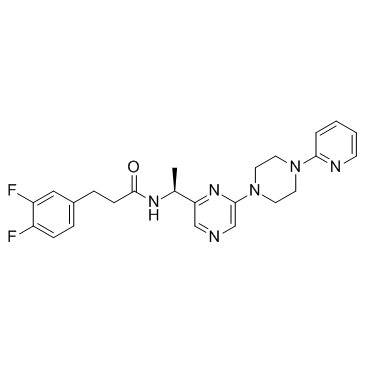
-
GC10065
(-)-Bicuculline methiodide
GABAA receptor antagonist
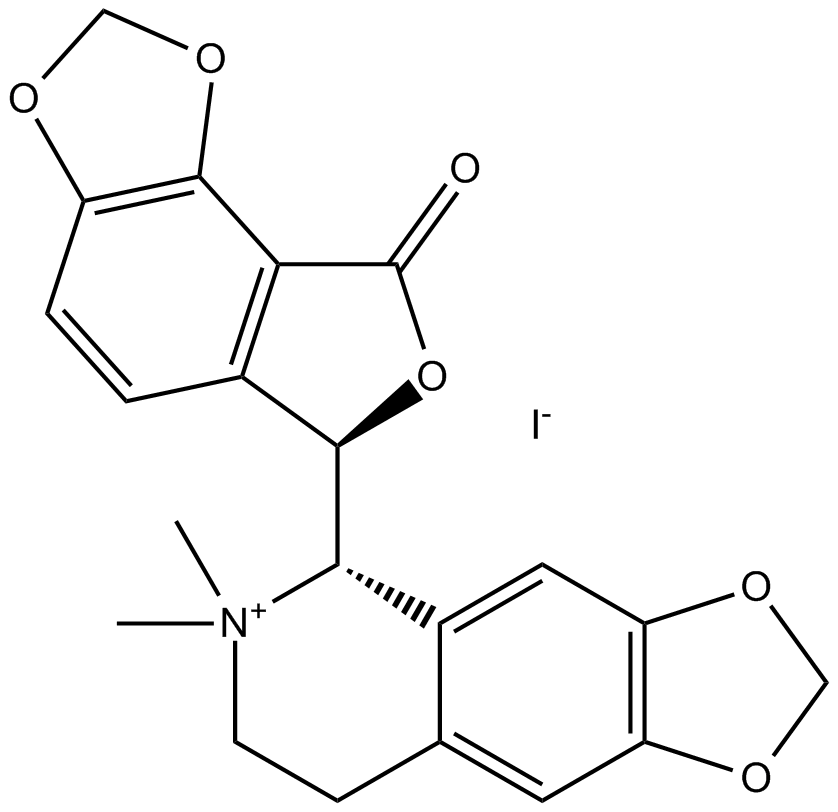
-
GC16857
(-)-Bicuculline methobromide
Le méthobromure de (-)-bicuculline (méthobromure de l-bicuculline) est un puissant antagoniste des récepteurs GABAA.
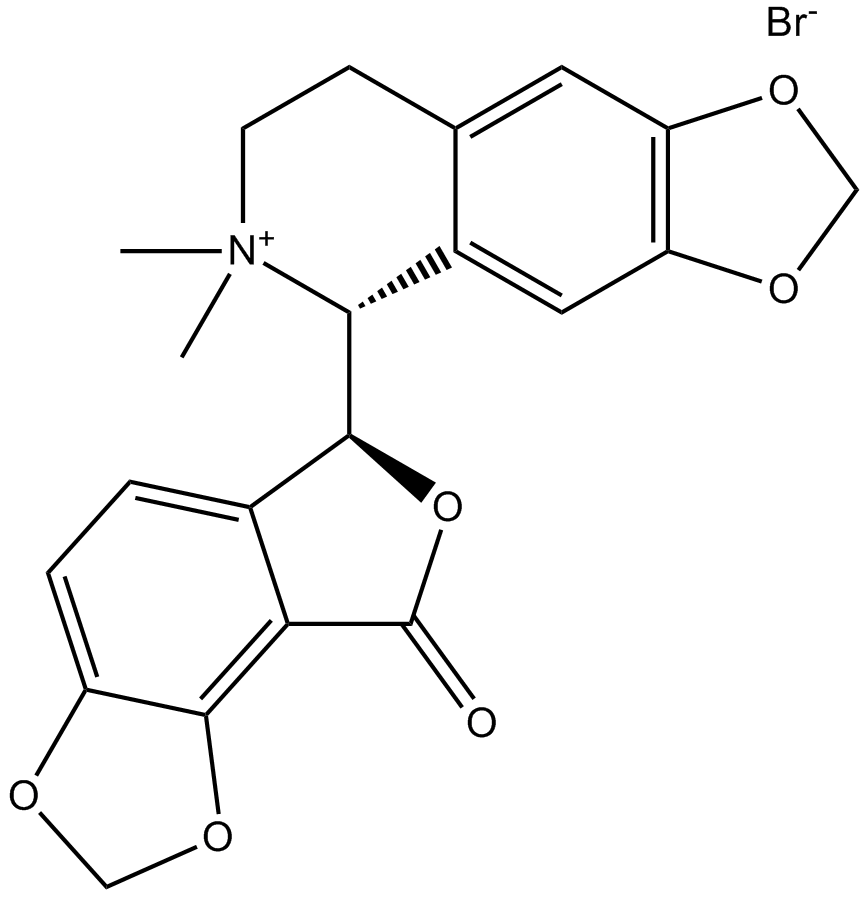
-
GC15636
(-)-Bicuculline methochloride
Le méthochlorure de (-)-bicuculline (méthochlorure de l-bicuculline) est un puissant antagoniste des récepteurs GABAA.
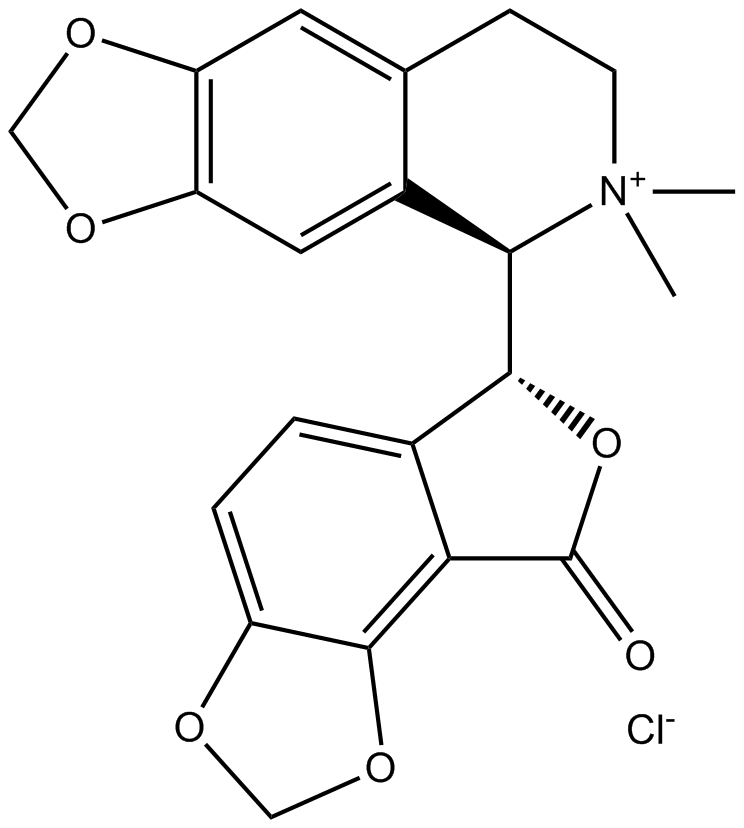
-
GC40842
(-)-Catechin
La (-)-catéchine est un isomère de la catéchine ayant une configuration trans 2S,3R au centre chiral. La catéchine inhibe la cyclooxygénase-1 (COX-1) avec une CI50 de 1,4 μM.

-
GC32957
(-)-Catechin gallate ((-)-Catechin 3-gallate)
Le gallate de (-)-catéchine ((-)-3-gallate de catéchine) est un constituant mineur des catéchines du thé vert. Le gallate de (-)-catéchine ((-)-gallate de catéchine 3) inhibe l'activité des enzymes COX-1 et COX-2.
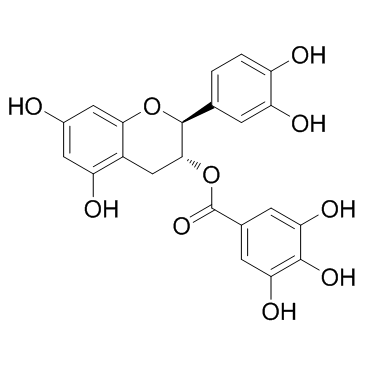
-
GC34947
(-)-Corynoxidine
La (-)-corynoxidine est un inhibiteur de l'acétylcholinestérase avec une valeur IC50 de 89,0 μM, isolé des parties aériennes de Corydalis speciosa.

-
GC17470
(-)-Cotinine
La (-)-cotinine ((-)-(-)-cotinine), un alcaloïde du tabac et un métabolite majeur de la nicotine, est utilisée comme indicateur biologique pour mesurer la composition de la fumée de tabac
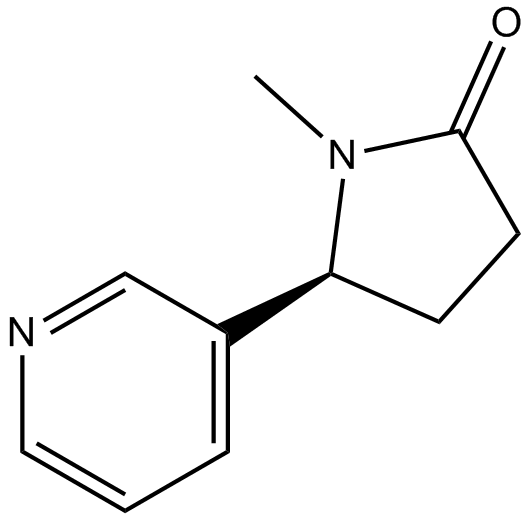
-
GC18343
(-)-CP 55,940
(-)-CP 55,940 is a potent and non-selective cannabinoid (CB) receptor agonist with Ki values of 0.5 to 5 and 0.69 to 2.8 nM for CB1 and CB2 receptors, respectively.
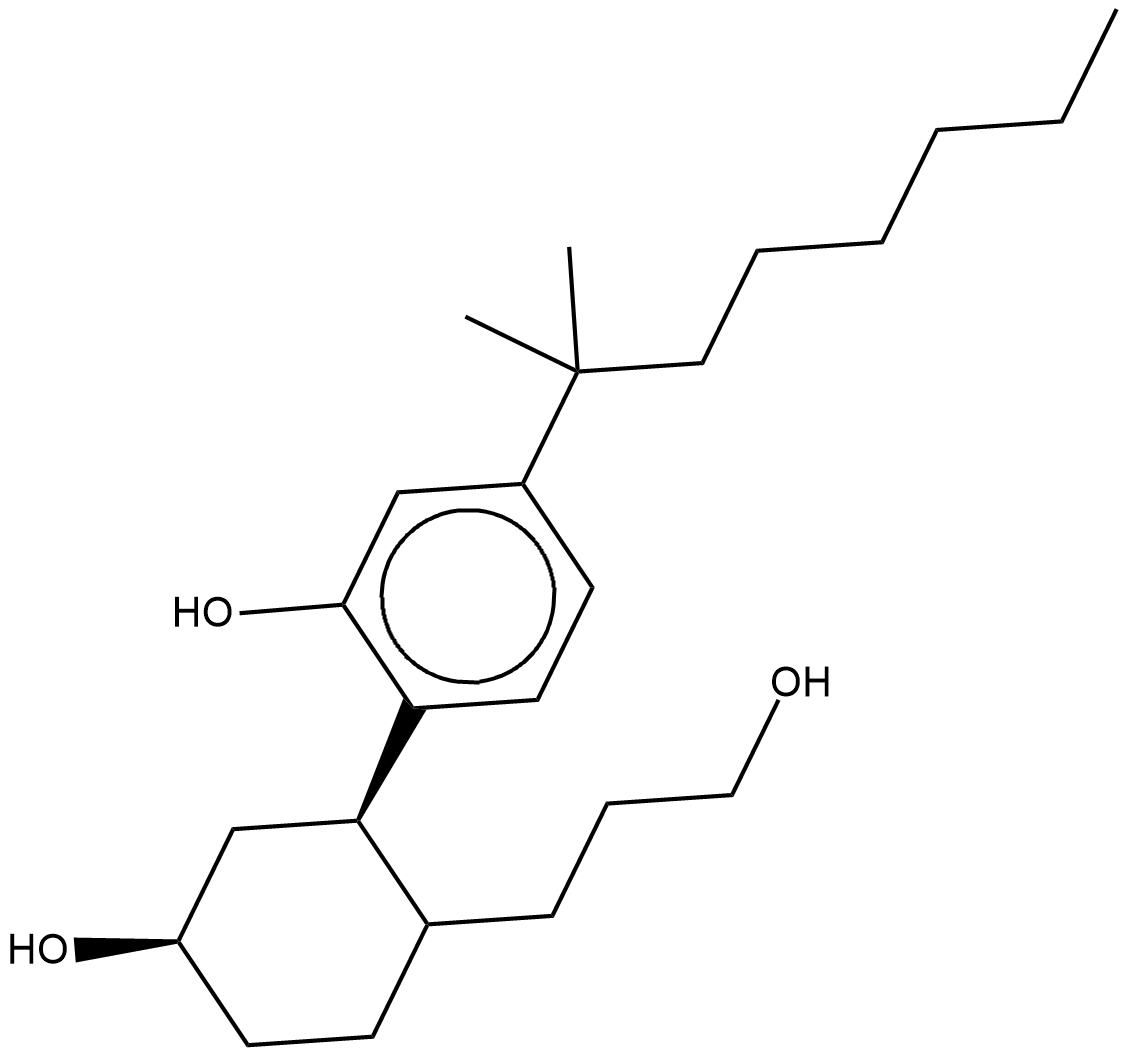
-
GC10603
(-)-epicatechin gallate
Le gallate de (-)-épicatéchine (Epicatechin gallate) inhibe la cyclooxygénase-1 (COX-1) avec une IC50 de 7,5 μM.
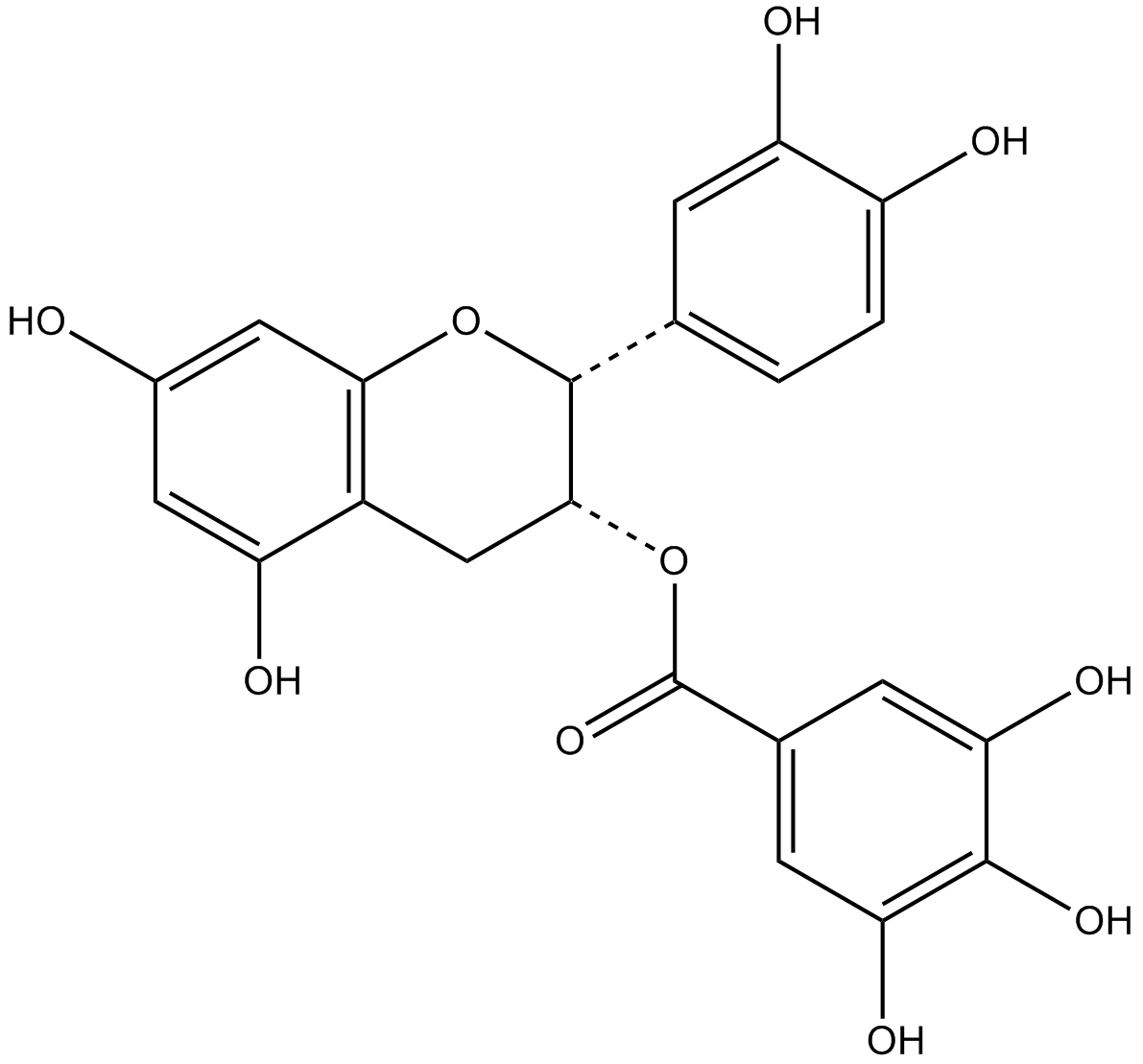
-
GC14400
(-)-Huperzine A
(-)-Huperzine A (Huperzine A) est un alcaloÏde isolé d'une mousse de club chinoise, avec une activité neuroprotectrice.
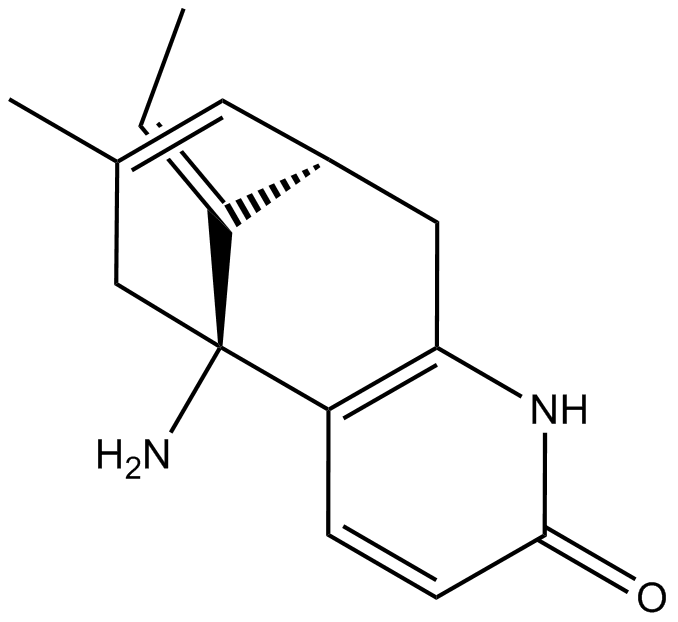
-
GC34949
(-)-Isocorypalmine
La (-)-isocorypalmine (tétrahydrocolumbamine), isolée de la fraction basique brute de Corydalis chaerophylla, est un ligand des récepteurs de la dopamine.

-
GC45250
(-)-L-threo-PDMP (hydrochloride)
(-)-L-threo-PDMP is an enhancer of ganglioside biosynthesis.

-
GC14157
(-)-Lobeline hydrochloride
Chlorhydrate de (-)-lobéline, un agoniste des récepteurs nicotiniques, agissant comme un puissant antagoniste des sous-types de récepteurs nicotiniques neuronaux α3β2 et α4β2.
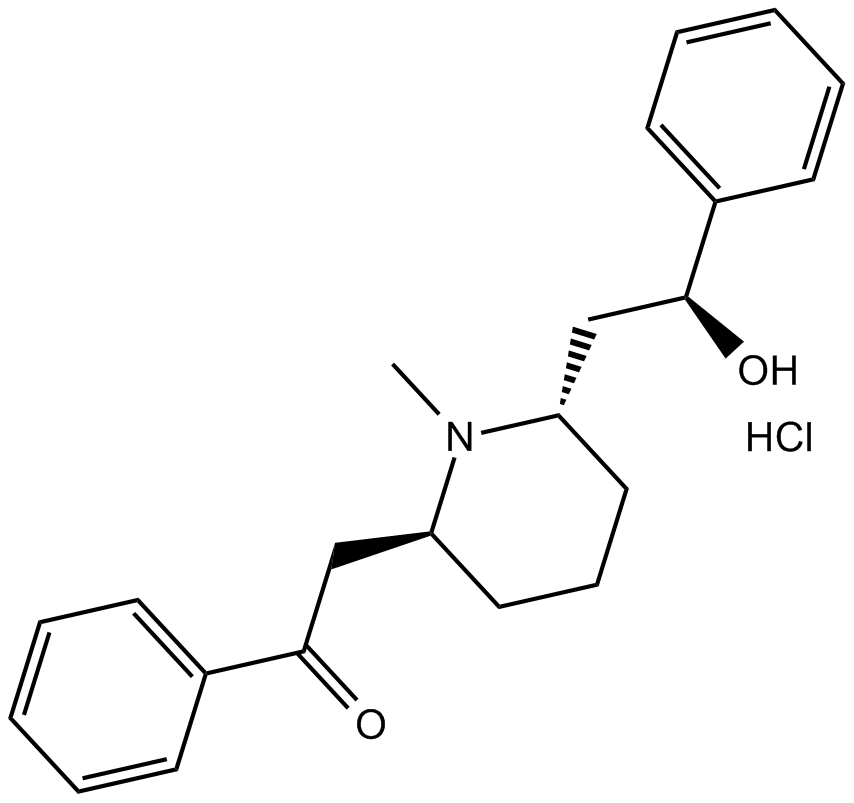
-
GC48551
(-)-Physostigmine (salicylate)
La (-)-physostigmine (salicylate) (salicylate d'ésérine) est un inhibiteur réversible de l'acétylcholinestérase (AChE).

-
GC17877
(-)-Quinpirole hydrochloride
Le chlorhydrate de (-)-quinpirole ((-)-LY 171555) est un agoniste de haute affinité du récepteur dopaminergique D2/D3.
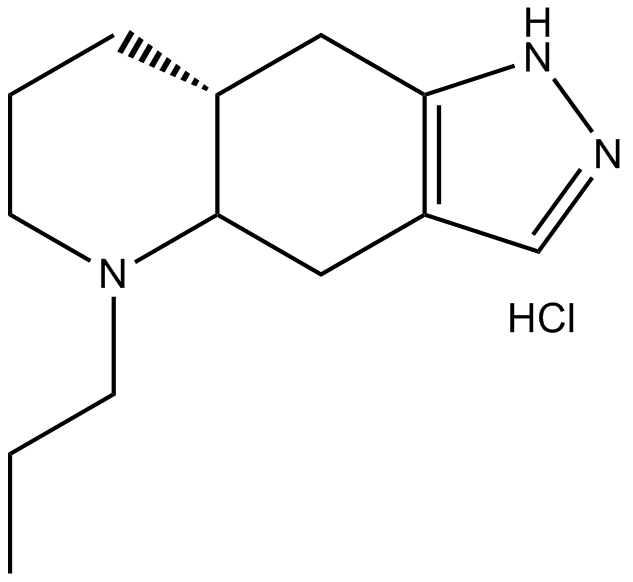
-
GC46248
(-)-Ropivacaine-d7 (hydrochloride)
An internal standard for the quantification of (–)-ropivacaine

-
GC30889
(-)-Securinine
La (-)-sécurine est un alcaloÏde d'origine végétale et également un antagoniste des récepteurs GABAA.
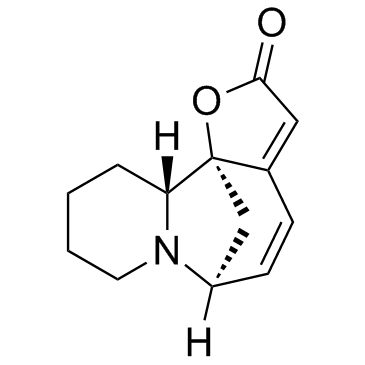
-
GC38489
(1α,1'S,4β)-Lanabecestat
(1α,1'S,4β)-Lanabecestat ((1α,1'S,4β)-AZD3293) un énantiomère moins actif de Lanabecestat.
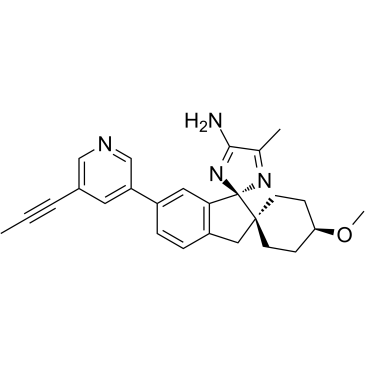
-
GC16207
(1S,3R)-ACPD
group I and II mGlu receptor agonist
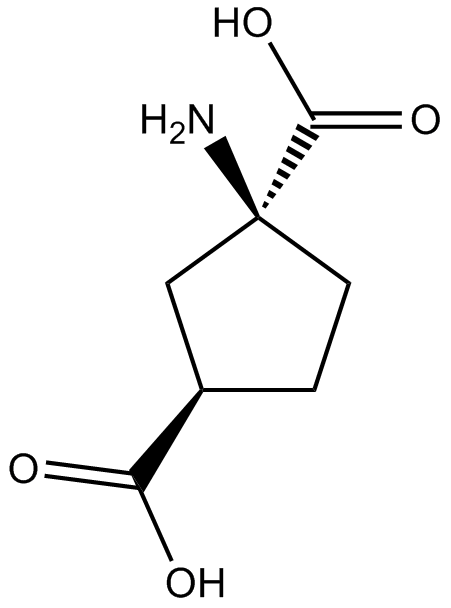
-
GC18622
(2'S)-Nicotine-1-oxide
(2'S)-Nicotine-1-oxide is a metabolite of nicotine .
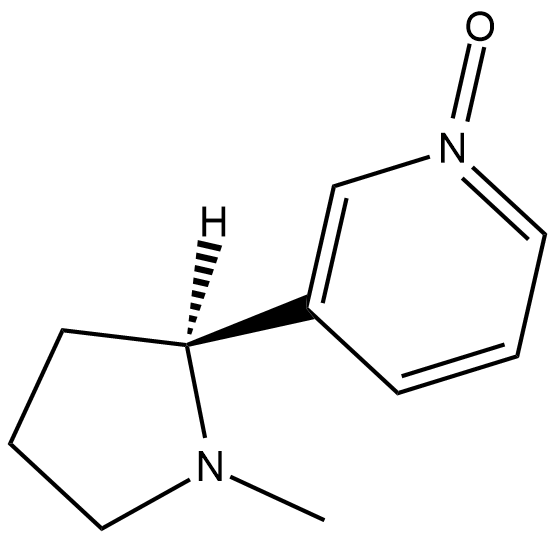
-
GC11379
(2R,4R)-APDC
(2R,4R)-APDC est un agoniste sélectif des récepteurs métabotropiques du glutamate du groupe II (mGluR).
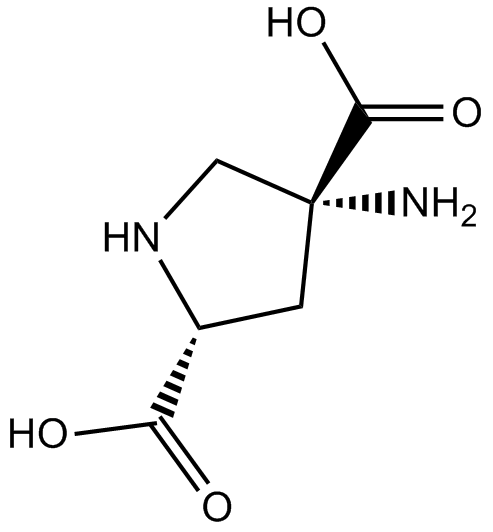
-
GC60000
(2S)-6-Prenylnaringenin
La (2S)-6-prénylnaringénine est le composé le plus efficace dans le cerveau antérieur.
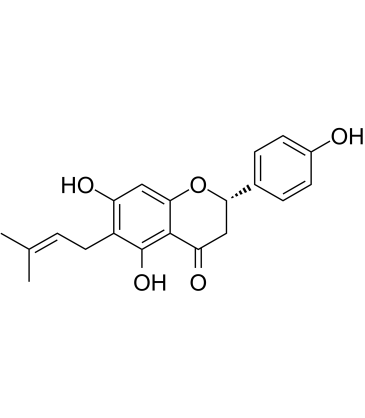
-
GC32644
(4E)-SUN9221
(4E)-SUN9221 est un puissant antagoniste du récepteur α1-adrénergique et du récepteur 5-HT2, avec des activités antihypertensives et antiagrégantes plaquettaires.
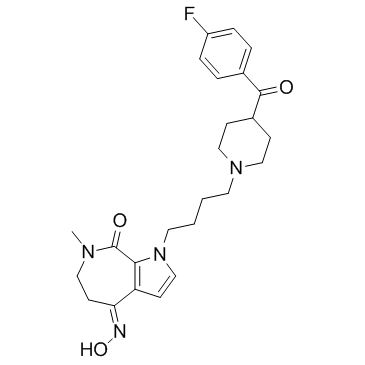
-
GC52100
(Arg)9 (trifluoroacetate salt)
A cationic cell-penetrating peptide

-
GC66255
(E)-3,4,5-Trimethoxycinnamic acid
L'acide (E)-3,4,5-triméthoxycinnamique (TMCA) est un acide cinnamique substitué par des groupes multi-méthoxy. L'acide (E)-3,4,5-triméthoxycinnamique est un puissant agoniste des récepteurs GABAA/BZ actif par voie orale. Le (E)-3,4,5-triméthoxycinnamique présente une affinité de liaison favorable aux récepteurs 5-HT2C et 5-HT1A, avec des valeurs IC50 de 2,5 et 7,6 μM, respectivement. L'acide (E)-3,4,5-triméthoxycinnamique présente une activité anticonvulsivante et sédative. L'acide (E)-3,4,5-triméthoxycinnamique peut être utilisé pour la recherche de l'insomnie, des maux de tête et de l'épilepsie.

-
GC49003
(E)-Ajoene
A disulfide with diverse biological activities

-
GC40286
(E,Z)-2-propyl-2-Pentenoic Acid
(E,Z)-2-propyl-2-Pentenoic acid is a bioactive metabolite of valproic acid that exhibits the same profile and potency of anticonvulsant activity in animal models as its parent compound without any observed teratogenicity and hepatotoxicity.

-
GC17333
(R)-(+)-8-Hydroxy-DPAT hydrobromide
5-HT1A serotonin receptor agonist
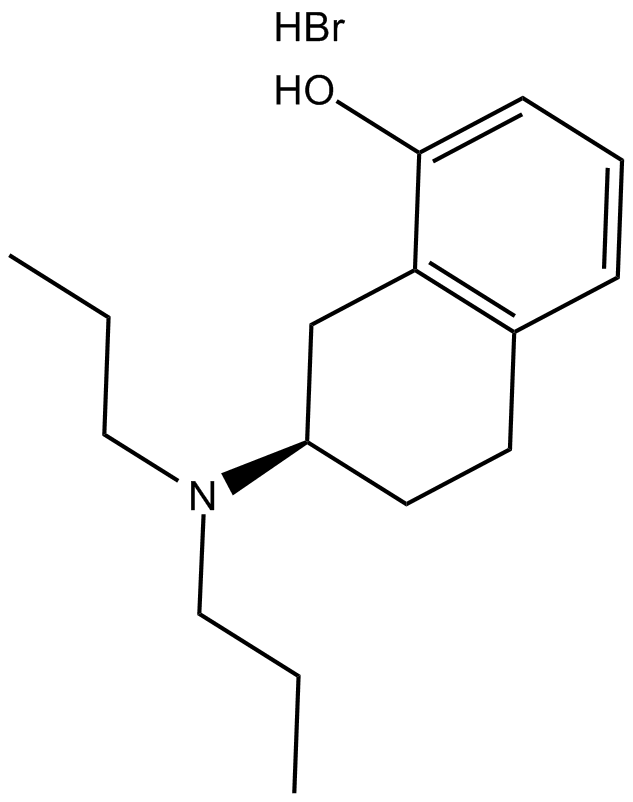
-
GC69834
(R)-(+)-Dimethindene maleate
Le maléate de (R)-(+)-diméthindène est un antagoniste des récepteurs H1 ayant une activité par voie orale et possédant des propriétés antihistaminiques chez les porcs.
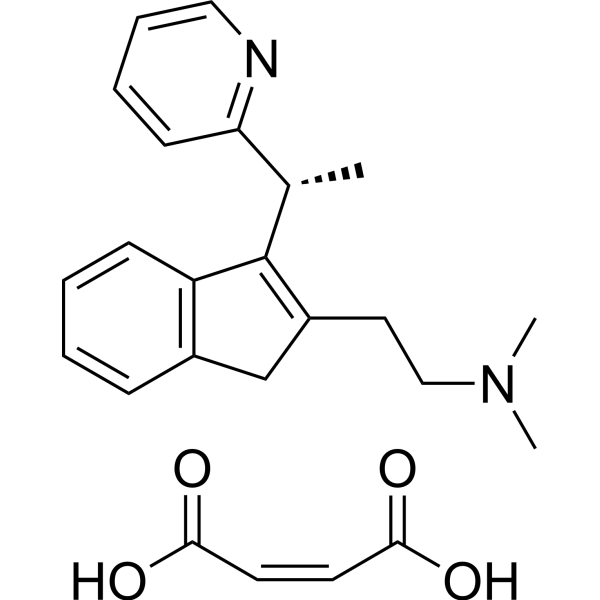
-
GC41709
(R)-(+)-Docosahexaenyl-1'-Hydroxy-2'-Propylamide
N-Acyl ethanolamines (NAEs) have diverse biological actions that are strongly affected by the associated acyl group.

-
GC41711
(R)-(+)-Linoleyl-1'-Hydroxy-2'-Propylamide
N-Acyl ethanolamines have diverse biological actions that are strongly affected by the associated acyl group.

-
GC11219
(R)-(+)-Tolterodine
La (R)-(+)-tolterodine (PNU-200583) est un puissant antagoniste des récepteurs muscariniques qui présente une sélectivité pour la vessie par rapport aux glandes salivaires in vivo.
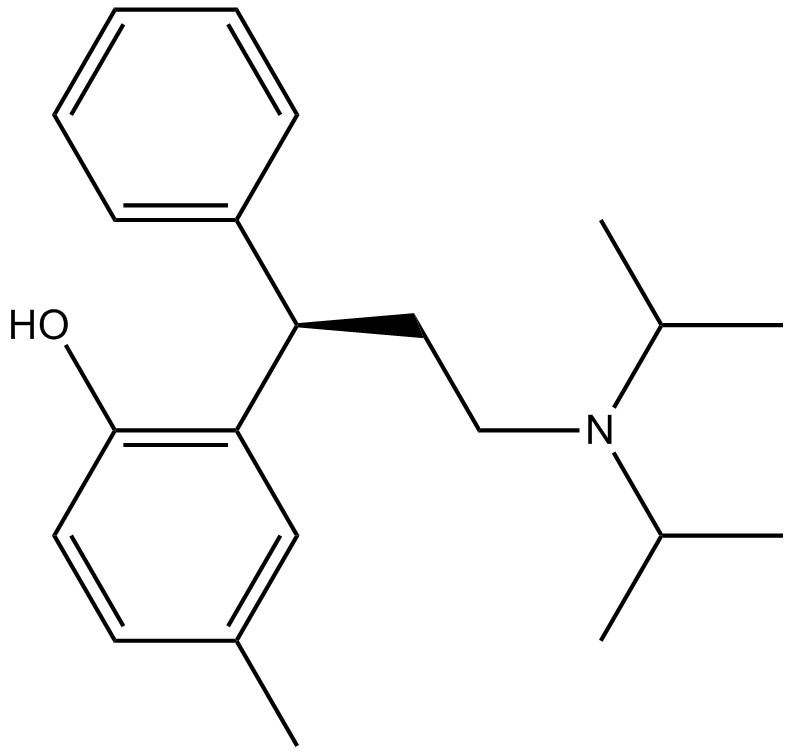
-
GC11809
(R)-(-)-α-Methylhistamine dihydrobromide
Le dibromhydrate de (R)-(-)-α-méthylhistamine est un agoniste puissant, sélectif et pénétrant dans le cerveau du récepteur de l'histamine H3, avec un Kd de 50,3 nM.
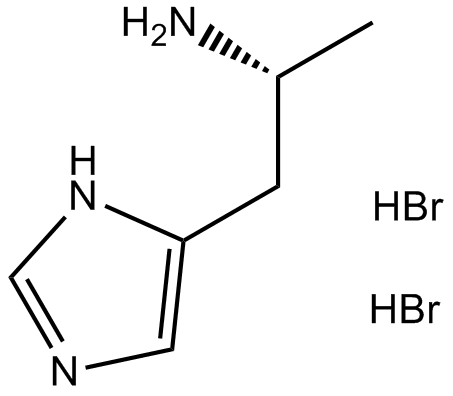
-
GC17722
(R)-3,4-DCPG
AMPA receptor antagonist with weak activity at NMDA receptors and little activity at kainate receptors
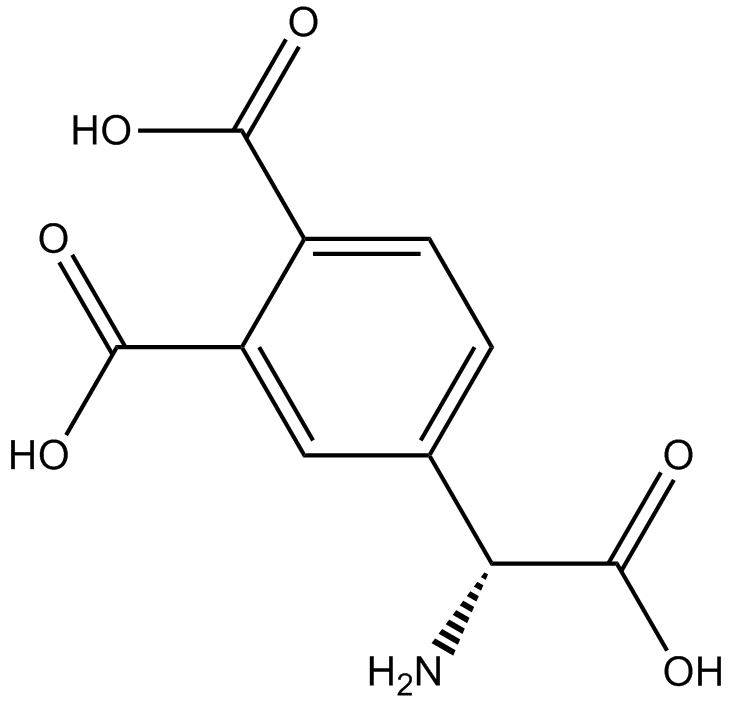
-
GC14124
(R)-3-Carboxy-4-hydroxyphenylglycine
NMDA and AMPA/kainate receptor antagonist
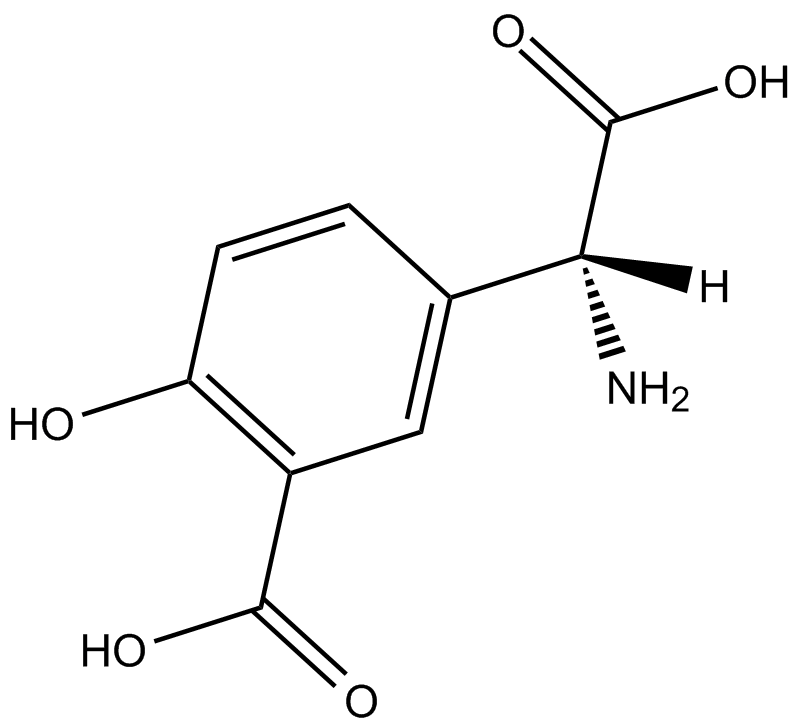
-
GC40594
(R)-AM1241
(R)-AM1241 binds to cannabinoid (CB) receptors and has greater than 100-fold selectivity for the CB2 over the CB1 receptor (Kis = 15 and 5,000 nM, respectively, in a membrane assay using human receptors).

-
GC14111
(R)-baclofen
(R)-Baclofen (Arbaclofène) est un agoniste sélectif des récepteurs GABAB.
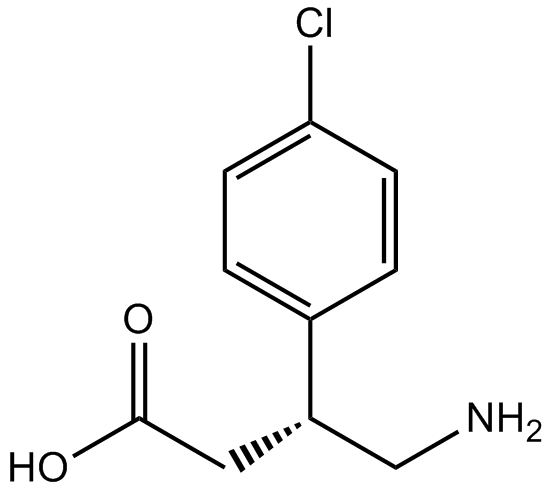
-
GC34986
(R)-Baclofen hydrochloride
Le chlorhydrate de (R)-baclofène (chlorhydrate d'arbaclofène) est un agoniste sélectif des récepteurs GABAB .
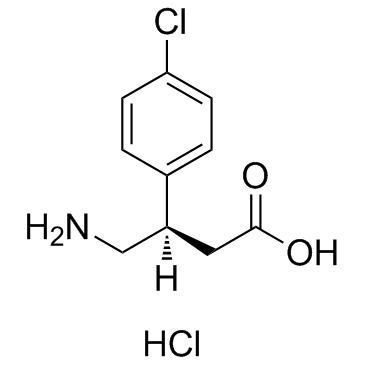
-
GC69805
(R)-Casopitant
(R)-Casopitant ((R)-GW679769) is the isomer of Casopitant. Casopitant is an NK(1) receptor antagonist. Casopitant can be used in research on chemotherapy-induced nausea and vomiting.
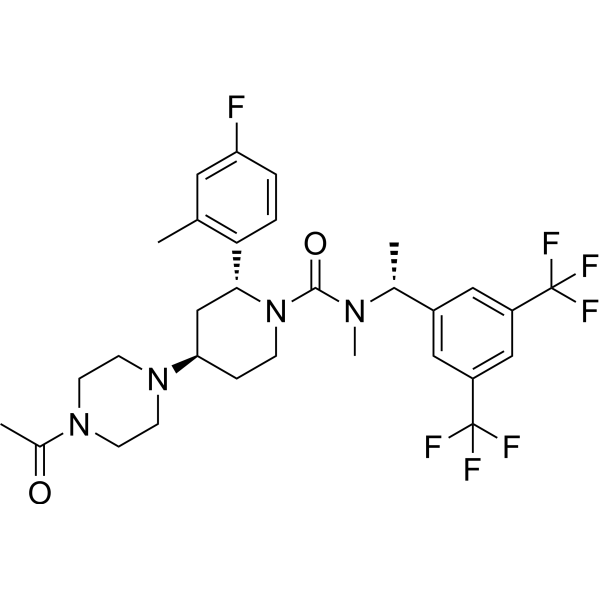
-
GC41715
(R)-Cetirizine (hydrochloride)
A selective histamine H1 receptor antagonist

-
GC50258
(R)-Citalopram oxalate
Enantiomer of escitalopram oxalate
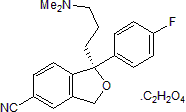
-
GC41718
(R)-KT109
(R)-KT109 is the (R) isomer of the diacylglycerol lipase β (DAGLβ) inhibitor KT109.

-
GC67937
(R)-Mirtazapine

-
GC68383
(R)-Preclamol
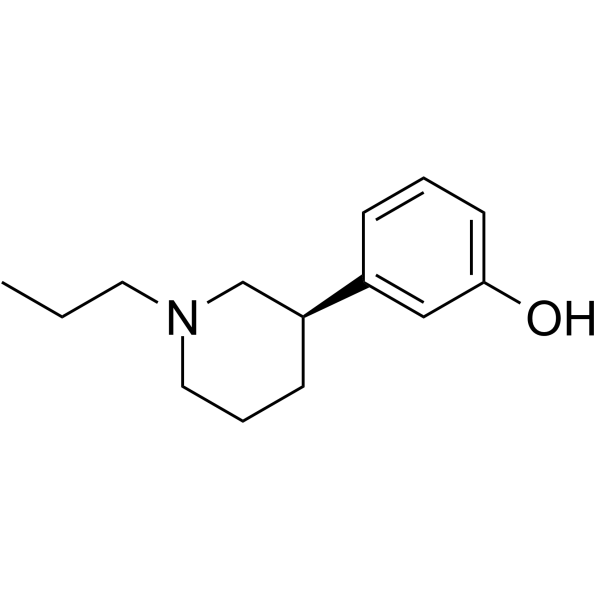
-
GC34993
(R)-Rivastigmine D6 tartrate
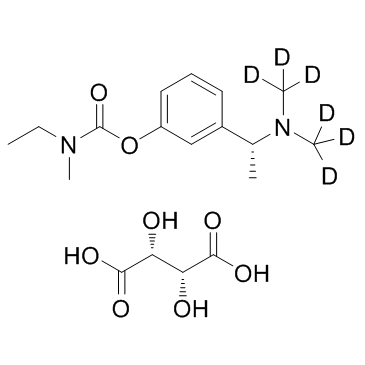
-
GC18238
(R)-γ-Valerolactone
(R)-γ-Valerolactone ((R)-GVL) is an isomer of GVL, a prodrug to γ-hydroxyvaleric acid (GHV).
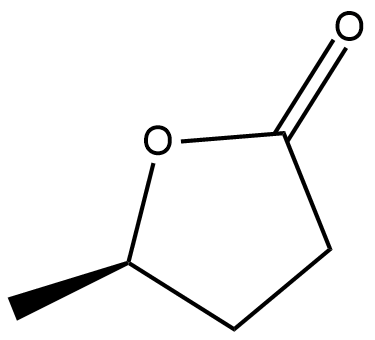
-
GC34995
(R,R)-Palonosetron Hydrochloride
Le chlorhydrate de (R,R)-palonosétron est l'énantiomère actif du palonosétron.
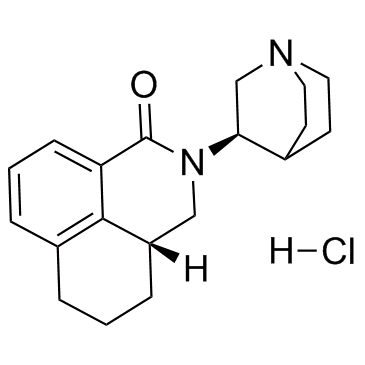
-
GC16032
(R,S)-Anatabine
La (R,S)-anatabine est un alcaloÏde mineur du tabac présent dans la famille des solanacées qui peut être utilisé comme marqueur spécifique pour la détection de l'usage du tabac.

-
GC16139
(R,S)-Anatabine (tartrate)
Aβ inhibitor
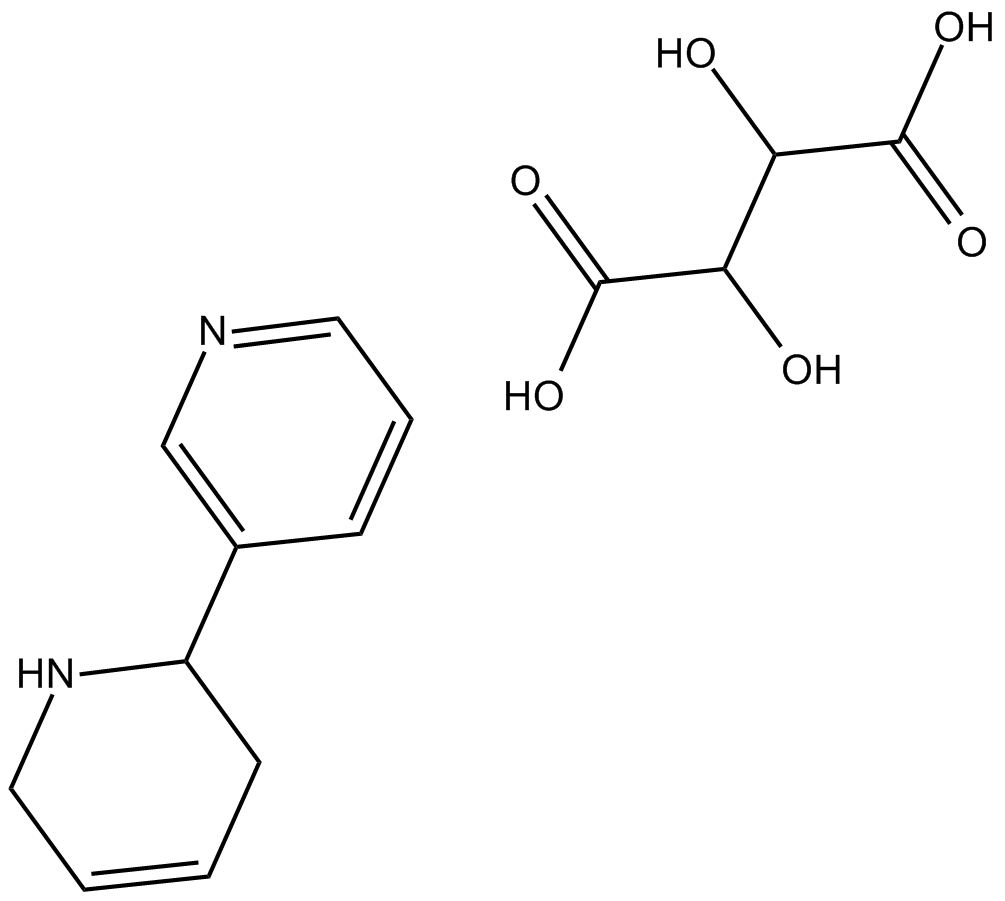
-
GC52185
(R,S)-Anatabine-d4

-
GC63632
(Rac)-Lorcaserin
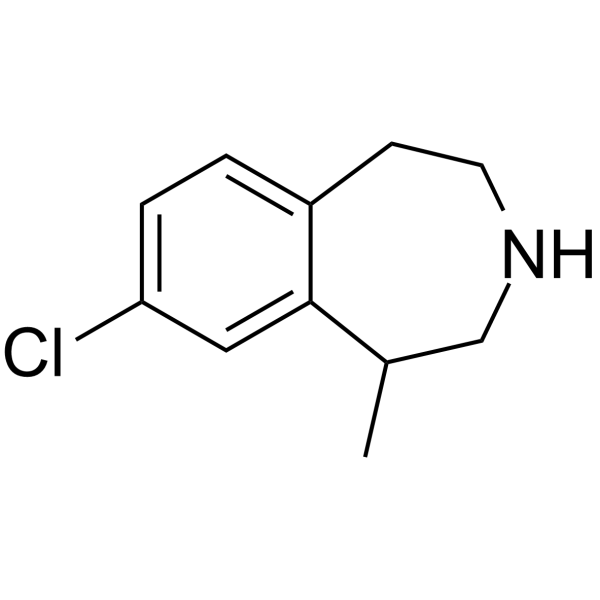
-
GC63382
(Rac)-Lorcaserin hydrochloride
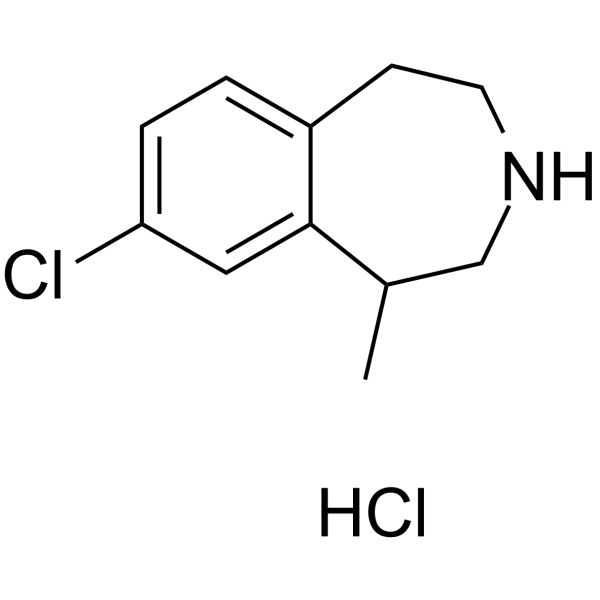
-
GC62745
(Rac)-PF-06256142
(Rac)-PF-06256142 est l'énantiomère le moins efficace du PF-06256142.
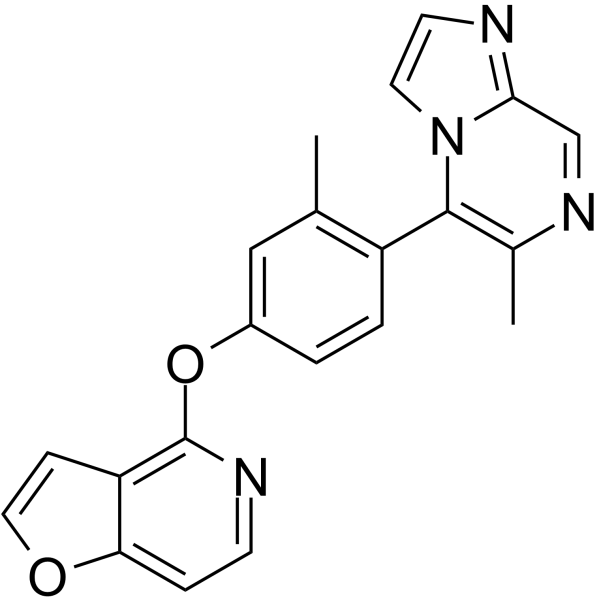
-
GC60004
(rel)-Tranylcypromine D5 hydrochloride
Le chlorhydrate de tranylcypromine-d5 (SKF 385-d5) est un chlorhydrate de (rel)-tranylcypromine marqué au deutérium.
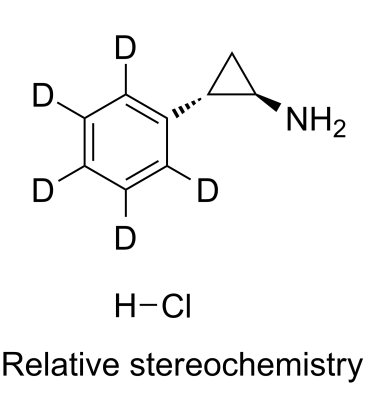
-
GC10349
(RS)-(±)-Sulpiride
(RS)-(±)-Le sulpiride est un antagoniste des récepteurs D2, un antipsychotique atypique de la classe des benzamides, utilisé principalement dans le traitement de la psychose associée À la schizophrénie et au trouble dépressif majeur, et parfois utilisé À faible dose pour traiter l'anxiété et dépression légère.
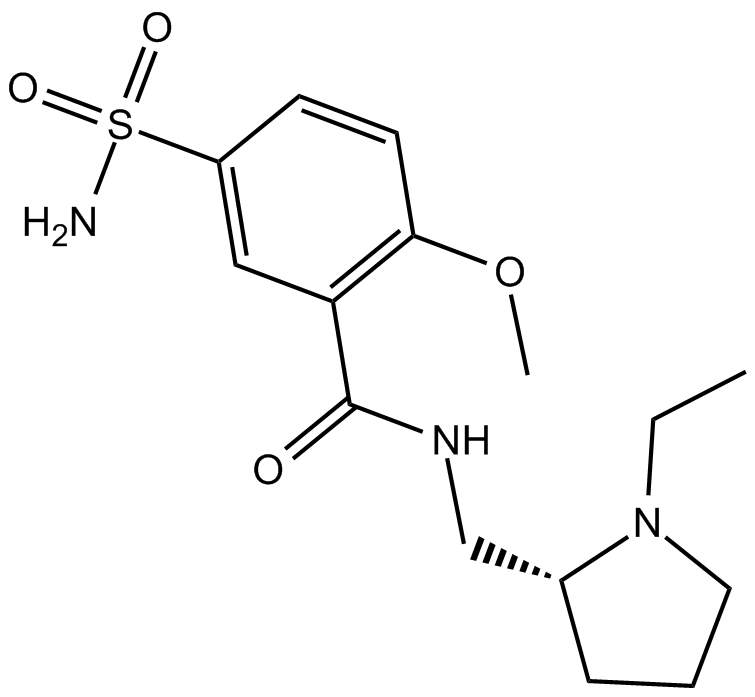
-
GC16542
(RS)-3,4-DCPG
antagonist of AMPA receptors and agonist of mGluR8
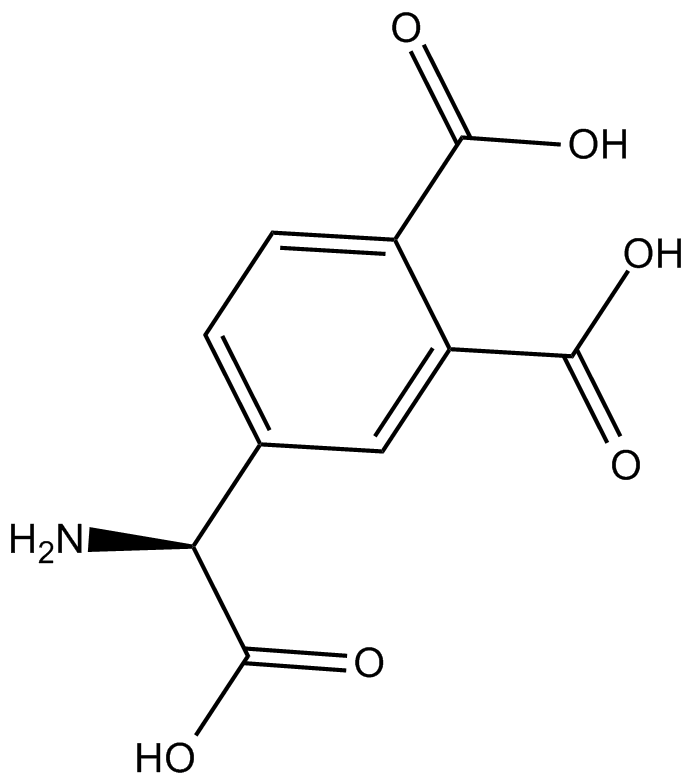
-
GC15342
(RS)-3,5-DHPG
DHPG ((RS)-3,5-DHPG) is an amino acid that is a selective potent agonist for group I mGluR (mGluR 1 and mGluR 5) and has no effect on Group II and III mGluR.
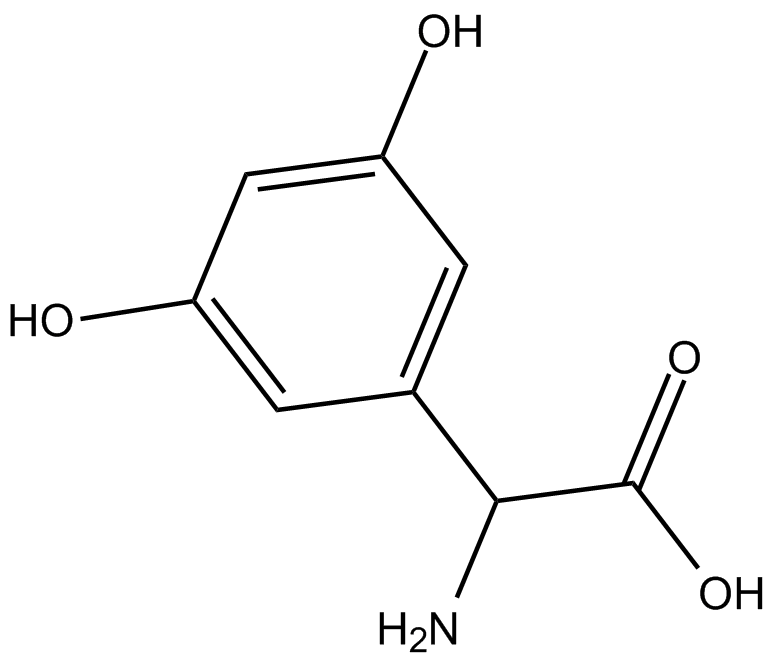
-
GC12985
(RS)-3-Hydroxyphenylglycine
PI-linked metabotropic glutamate receptors agonist
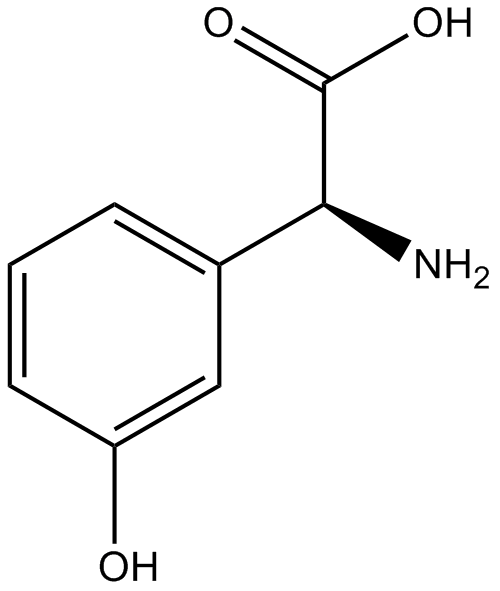
-
GC13288
(RS)-4-Carboxy-3-hydroxyphenylglycine
broad spectrum EAA agonist/antagonist
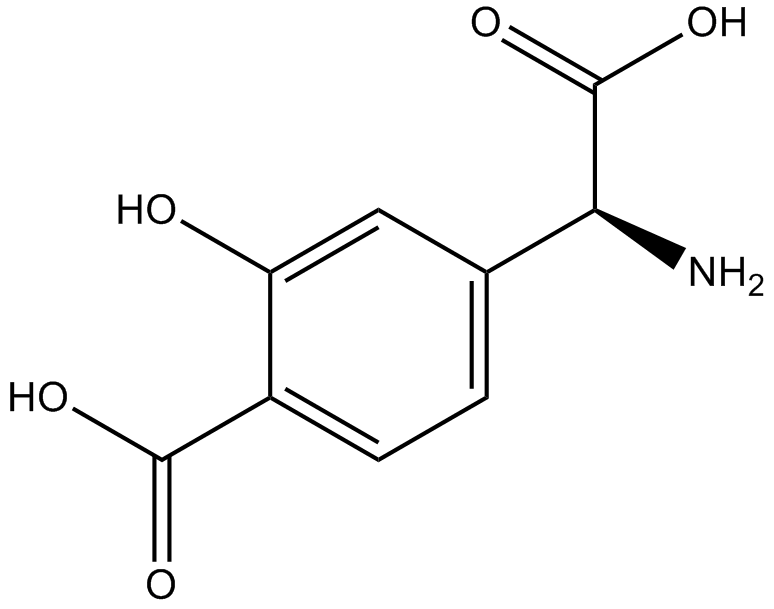
-
GC13773
(RS)-4-Carboxyphenylglycine
broad spectrum EAA ligand
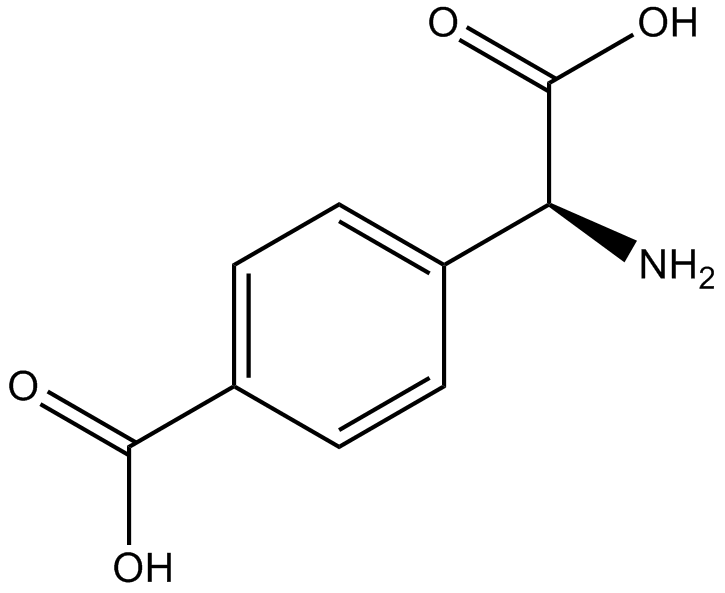
-
GC11771
(RS)-APICA
(RS)-APICA est un antagoniste sélectif du récepteur métabotropique du glutamate du groupe II (mGluR II).
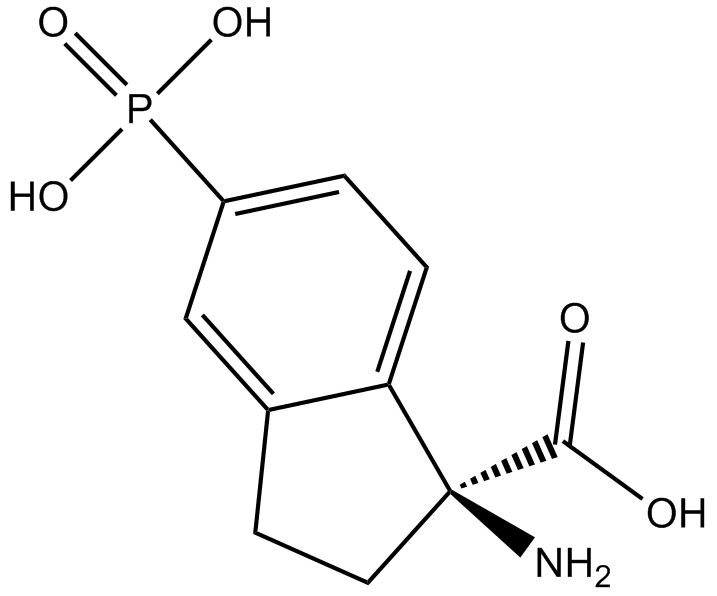
-
GC12279
(RS)-MCPG
(RS)-MCPG (alpha-MCPG) est un antagoniste compétitif et sélectif des récepteurs métabotropiques du glutamate (mGluR) du groupe I/groupe II.
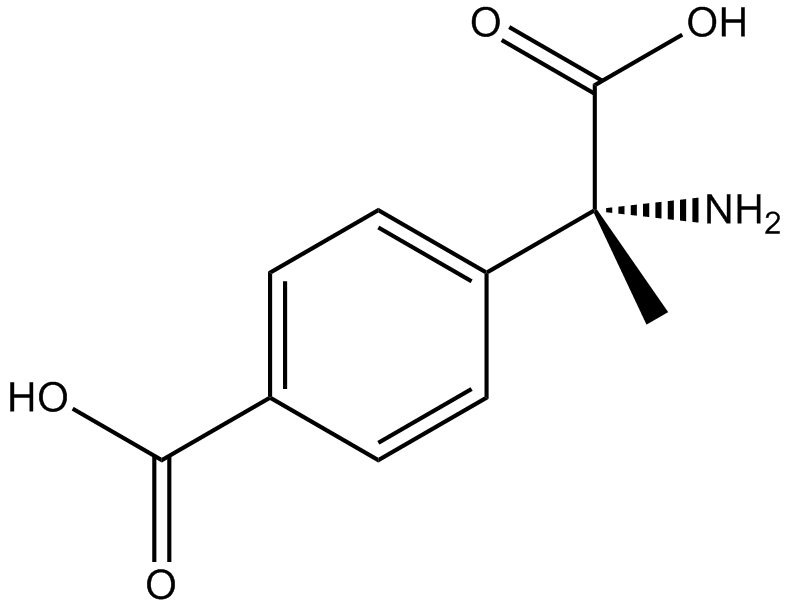
-
GC11997
(RS)-MCPG disodium salt
group I/group II metabotropic glutamate receptor antagonist
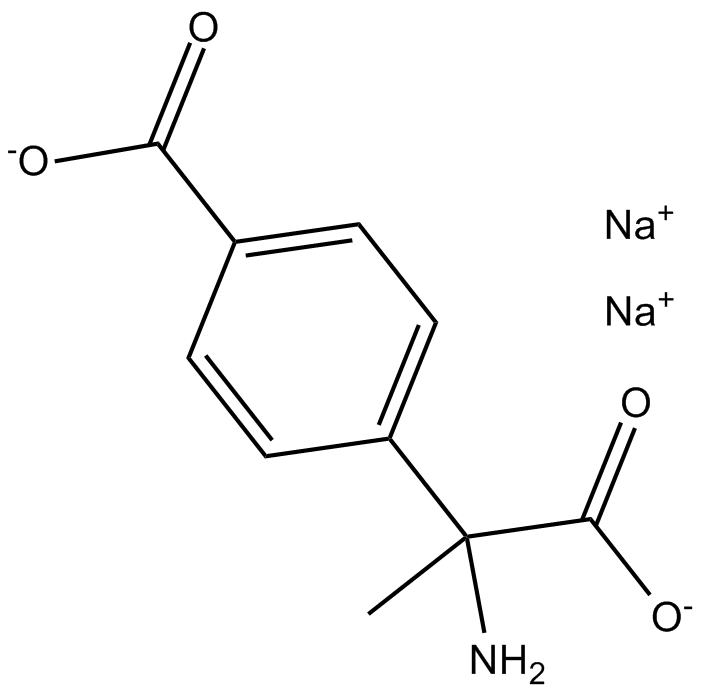
-
GC11433
(RS)-PPG
(RS)-PPG est un agoniste puissant et sélectif des mGluR du groupe III.
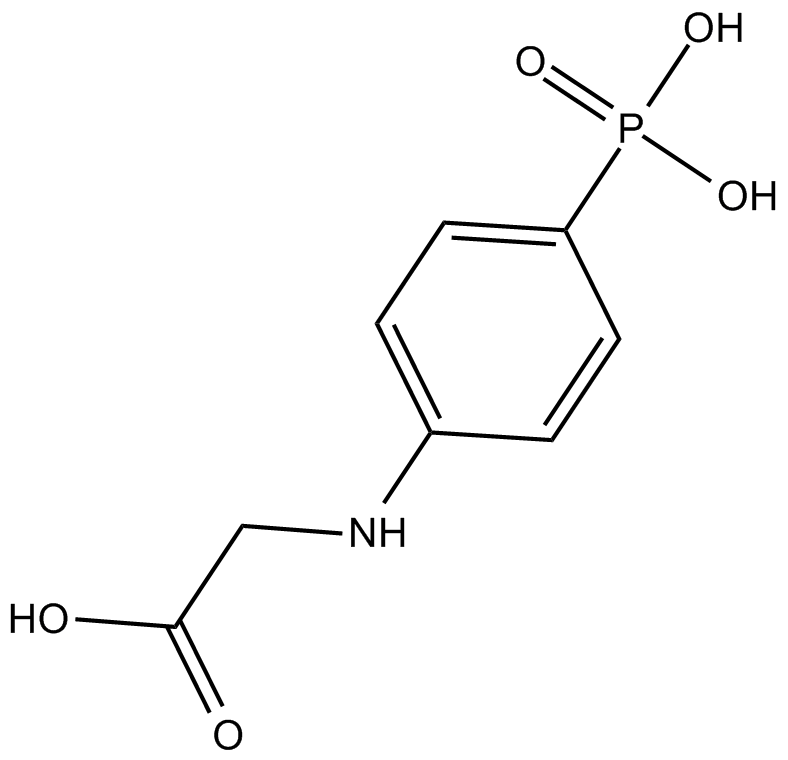
-
GC10704
(S)-(+)-α-Methylhistamine dihydrobromide
H3 histamine receptor agonist
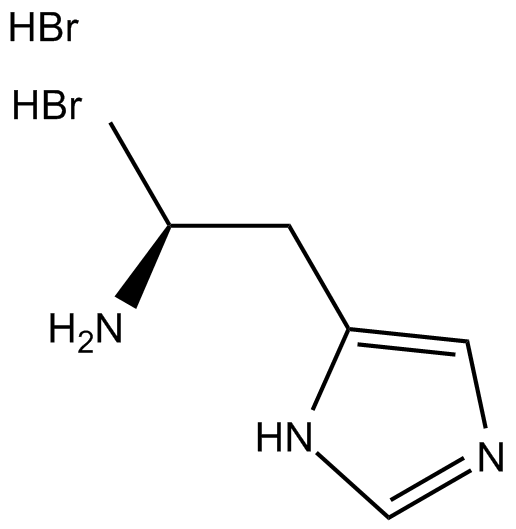
-
GC41727
(S)-(+)-3-Quinuclidinol
(S)-(+)-Quinuclidinol is a precursor in the synthesis of solifenacin.

-
GC14479
(S)-(+)-Dimethindene maleate
Le maléate de (S)-(+)-diméthindène, un énantiomère, est un puissant antagoniste sélectif des récepteurs muscariniques M2 (pA2 =7,86/7,74; pKi =7,78).
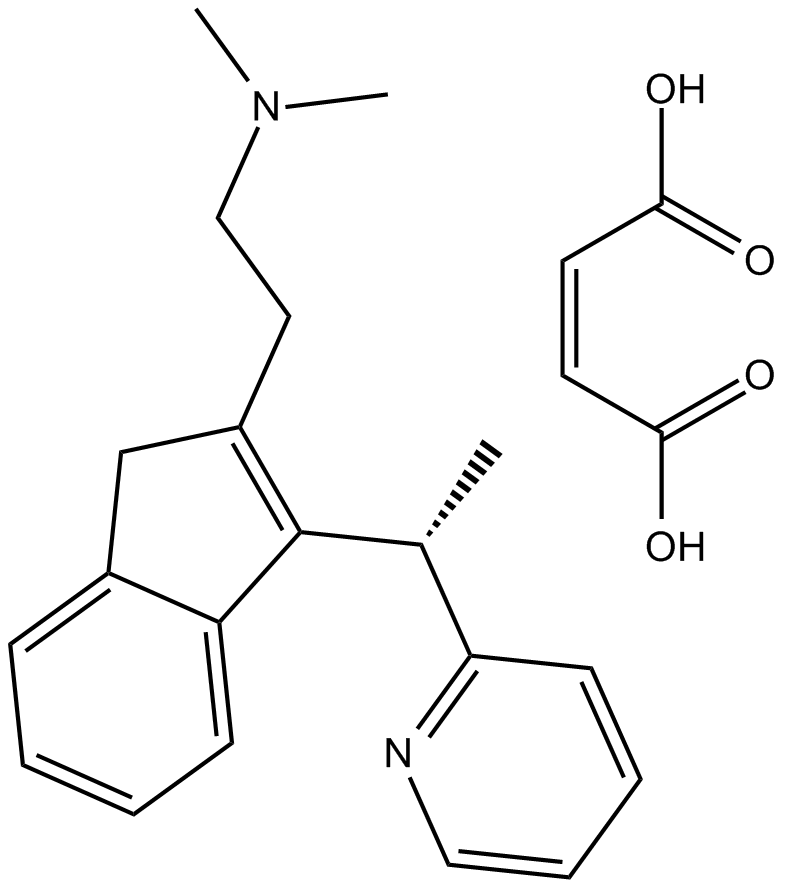
-
GC13114
(S)-(+)-Ibuprofen
(S)-(+)-Ibuprofène ((S)-Ibuprofène), un énantiomère S(+) de l'ibuprofène, est un puissant inhibiteur de COX-1 et COX-2 avec des IC50 de 2,1 μM et 1,6 μM, respectivement.
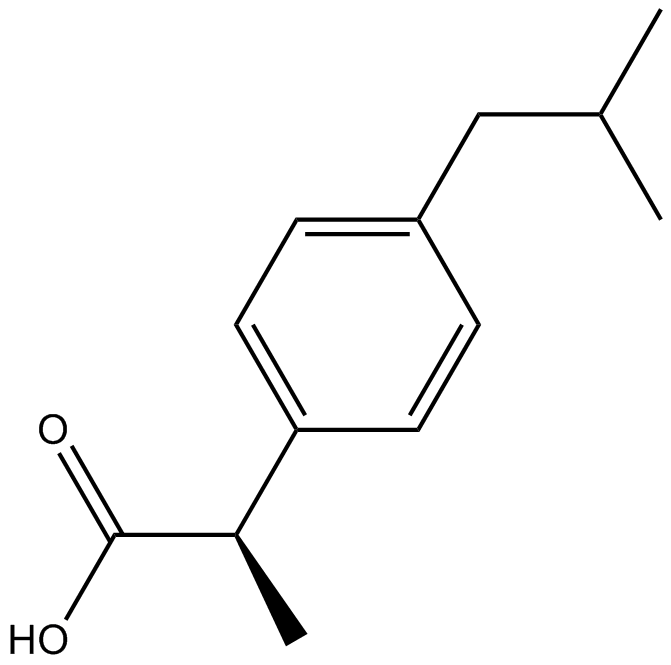
-
GC64804
(S)-(+)-Ibuprofen D3
(S)-(+)-Ibuprofène D3 ((S)-Ibuprofène D3) est un deutérium marqué (S)-(+)-Ibuprofène.
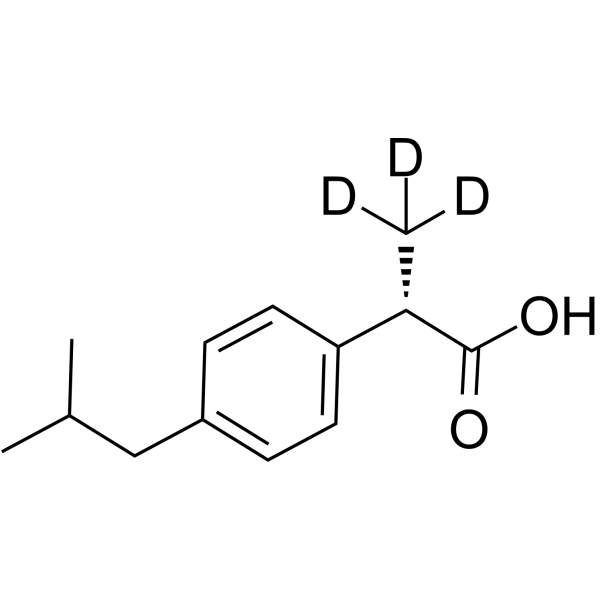
-
GC11889
(S)-(-)-5-Fluorowillardiine
La (S)-(-)-5-Fluorowillardiine est un agoniste AMPAR puissant et spécifique.
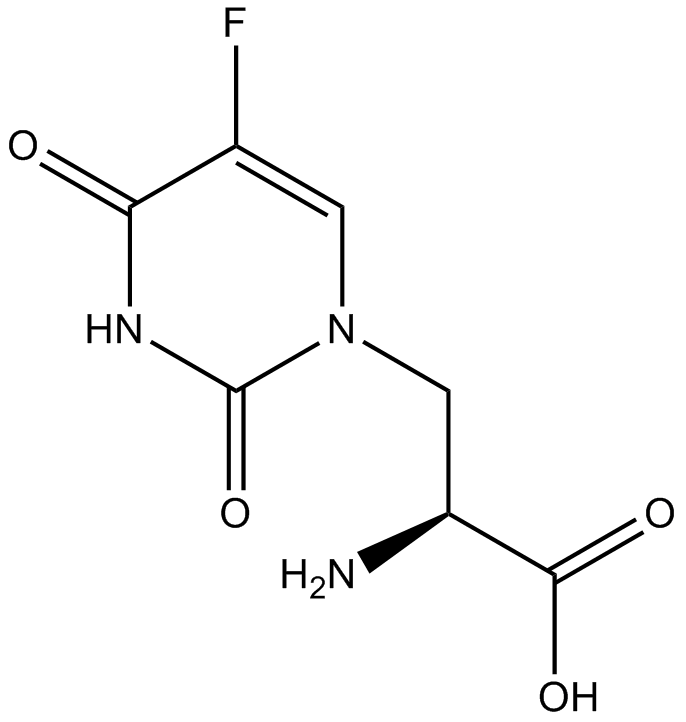
-
GC34998
(S)-(-)-5-Fluorowillardiine hydrochloride
Le chlorhydrate de (S)-(-)-5-Fluorowillardiine est un agoniste AMPAR puissant et spécifique.

-
GC64735
(S)-(-)-Levamisole
(S)-(-)-Lévamisole (Lévamisole), un agent anthelminthique aux propriétés immunomodulatrices.
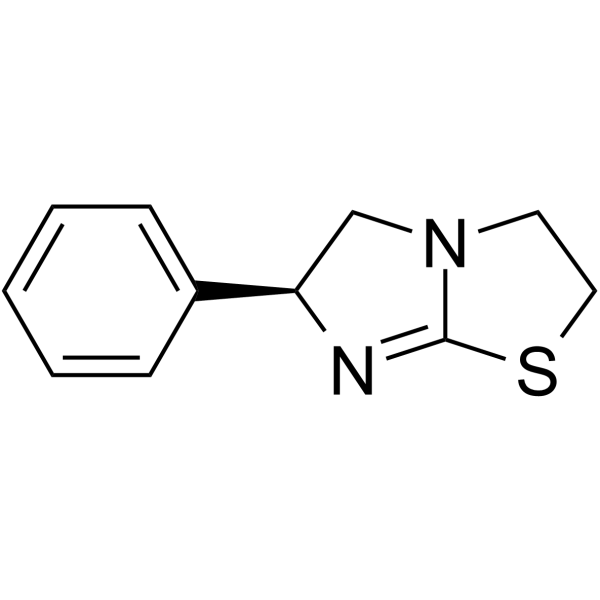
-
GC14639
(S)-3,4-DCPG
Le (S)-3,4-DCPG est un agoniste sélectif du récepteur métabotropique du glutamate 8a (mGluR8a) avec une CE50 de 31 nM dans les cellules AV12-664 exprimant le mGluR8 humain.
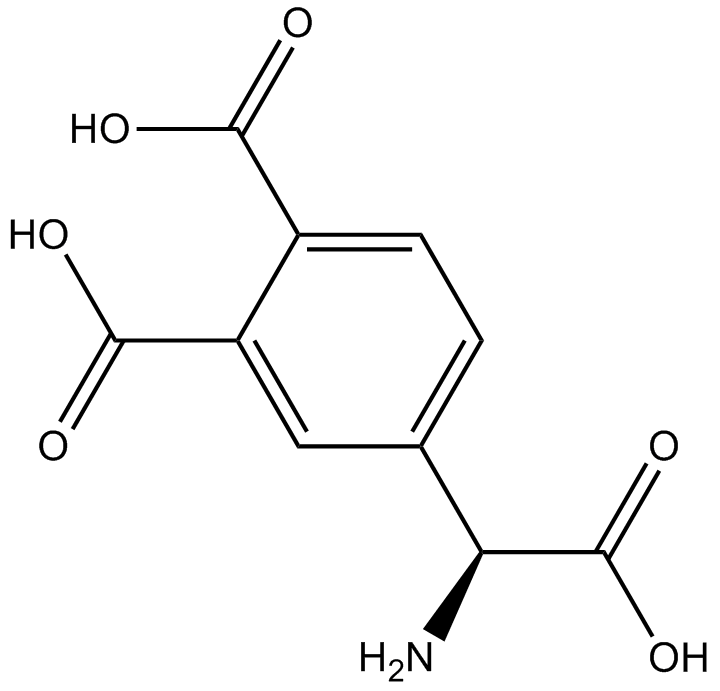
-
GC16858
(S)-3,5-DHPG
Le (S)-3,5-DHPG est un agoniste faible mais sélectif des récepteurs métabotropiques du glutamate du groupe I (mGluRs) avec des valeurs Ki de 0,9 μM et 3,9 μM pour mGluR1a et mGluR5a, respectivement .
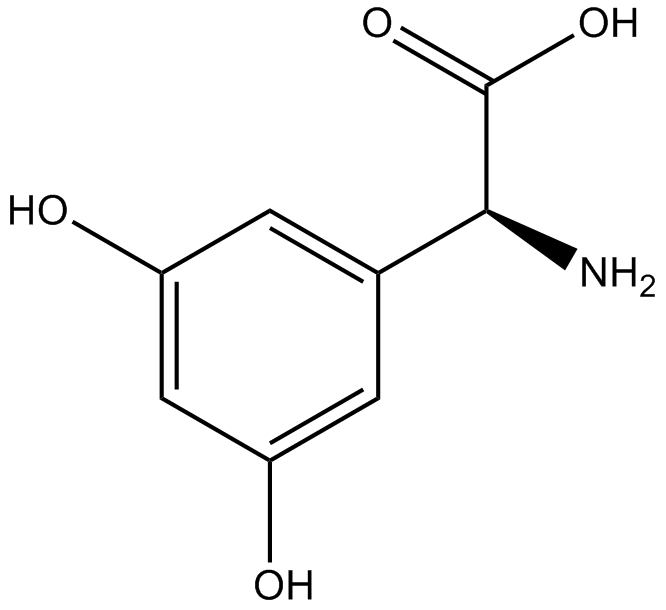
-
GC11536
(S)-3-Carboxy-4-hydroxyphenylglycine
group I metabotropic glutamate receptor antagonist and group II mGlu agonist
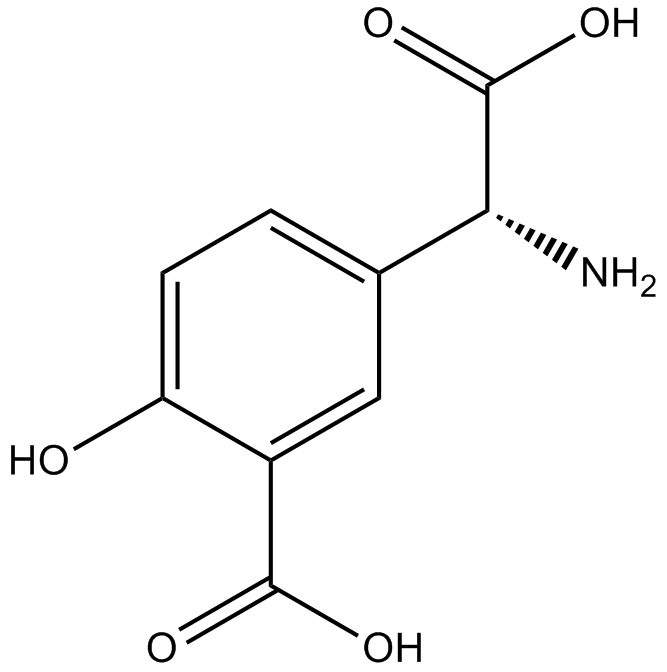
-
GC16234
(S)-3-Hydroxyphenylglycine
group I metabotropic glutamate receptors agonist
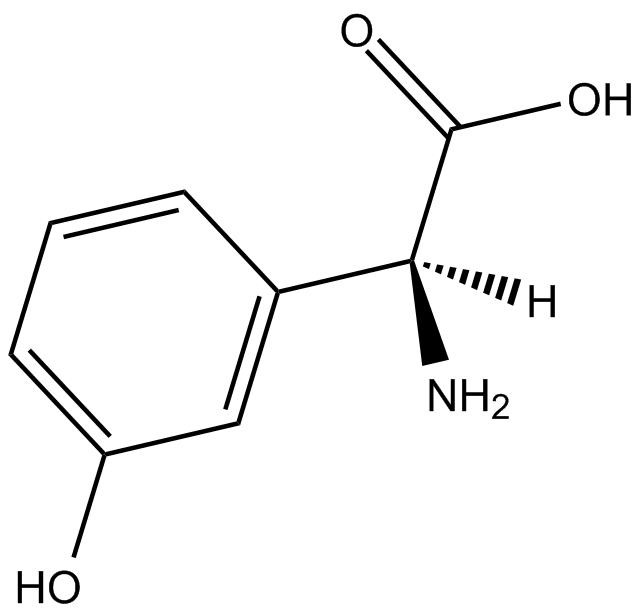
-
GC45964
(S)-3-N-Cbz-amino-succinimide
An anticonvulsant

-
GC12012
(S)-4-Carboxy-3-hydroxyphenylglycine
group I mGlu1a/1a receptor antagonist and mGluR2 agonist
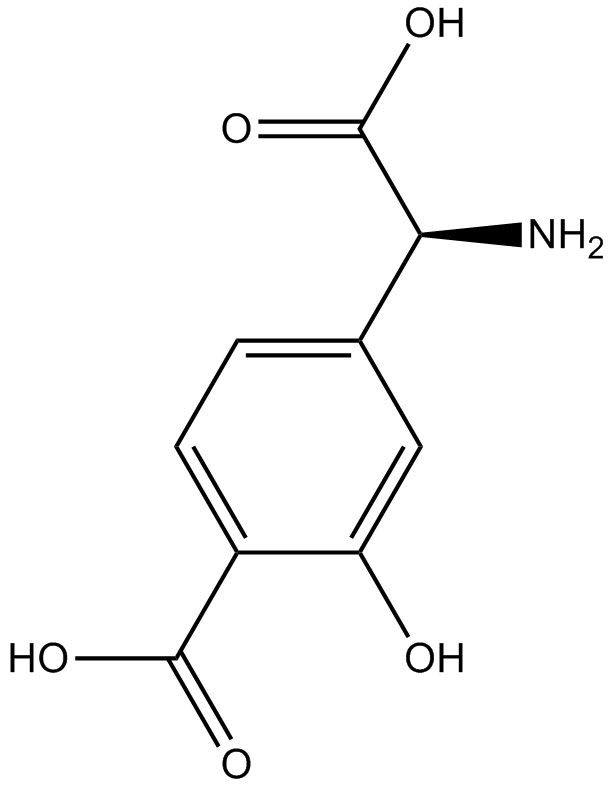
-
GC14176
(S)-4-Carboxyphenylglycine
group I metabotropic glutamate receptor antagonist
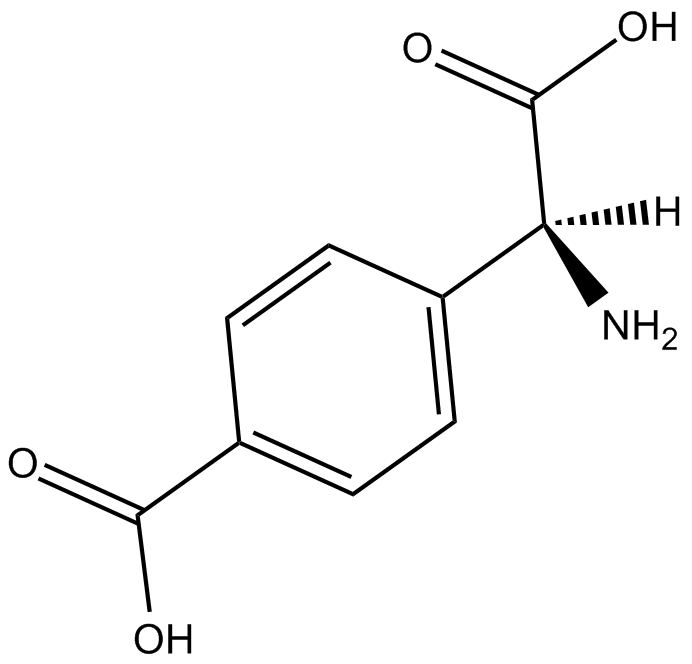
-
GC40595
(S)-AM1241
(S)-AM1241 binds to cannabinoid (CB) receptors and is selective for the CB2 over the CB1 receptor (Kis = 658 and >10,000 nM, respectively, in a membrane assay using human receptors).

-
GC63655
(S)-Amisulpride
Le (S)-Amisulpride (Esamisulpride) est un puissant antagoniste des récepteurs dopaminergiques D2/D3.
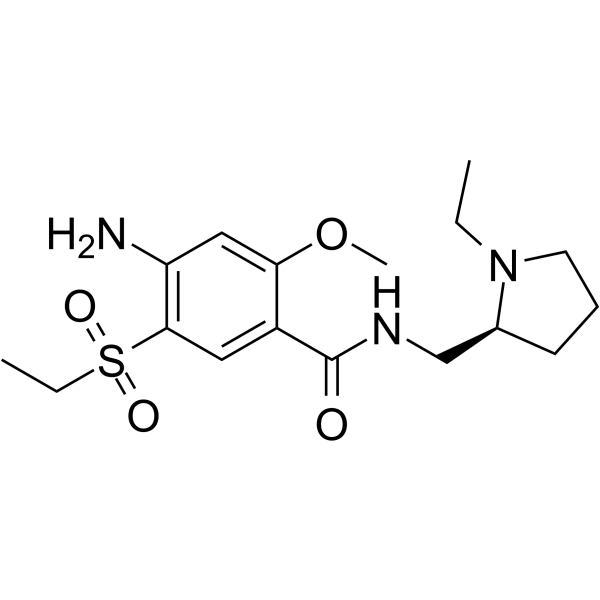
-
GC46352
(S)-DO271
An inactive control for DO264



